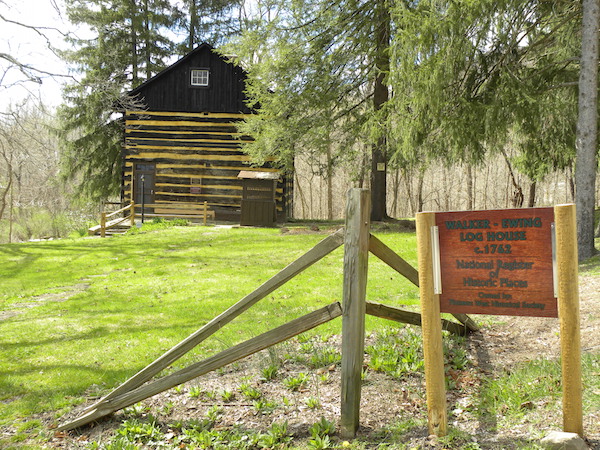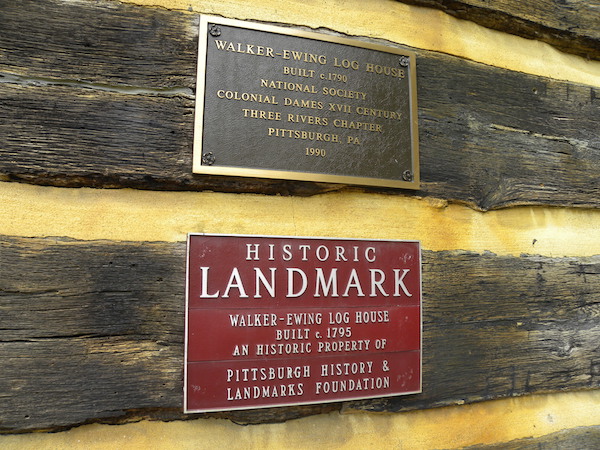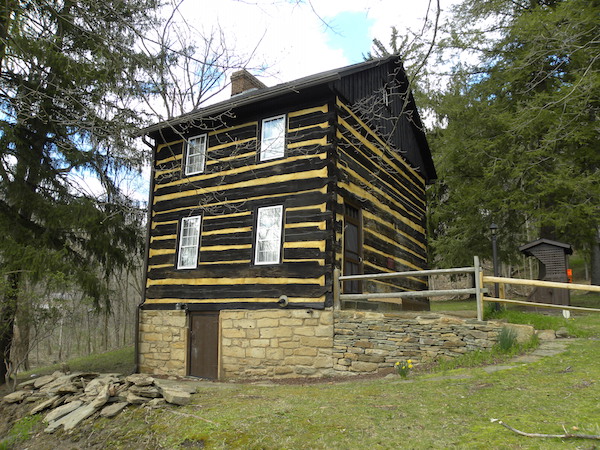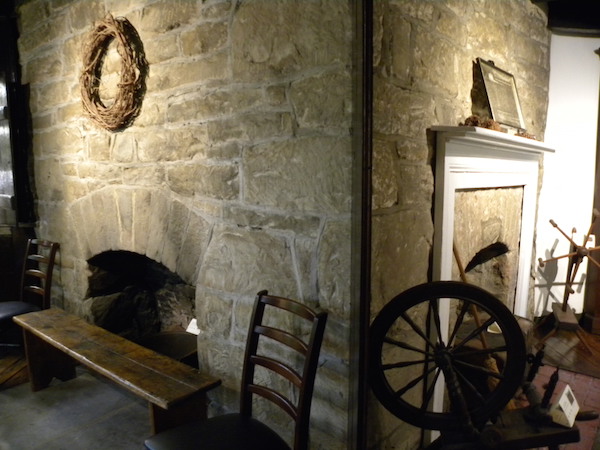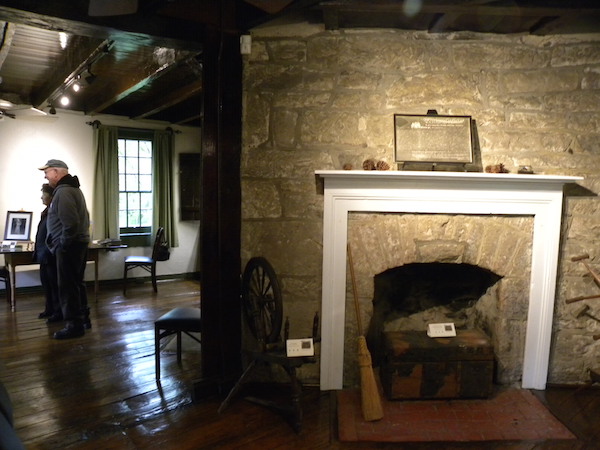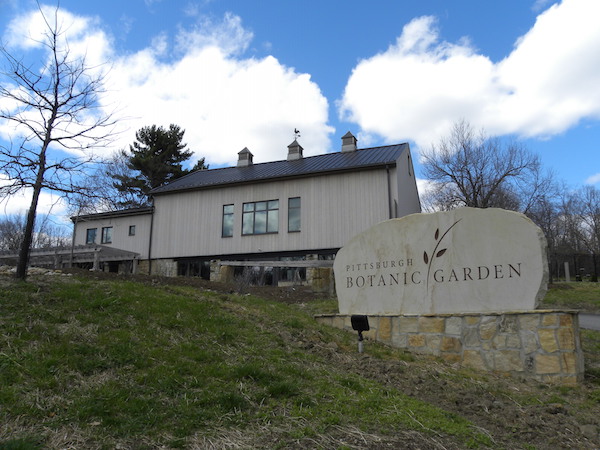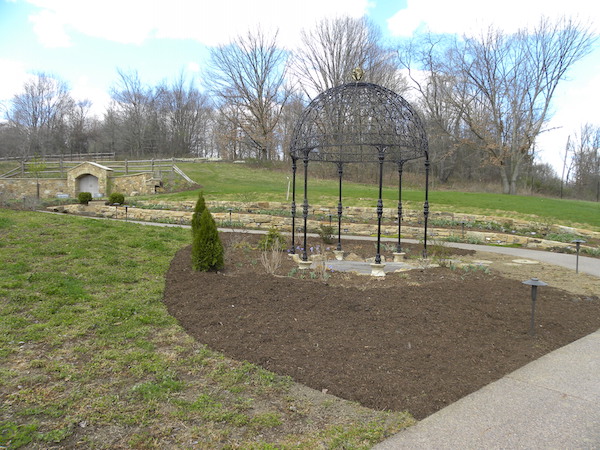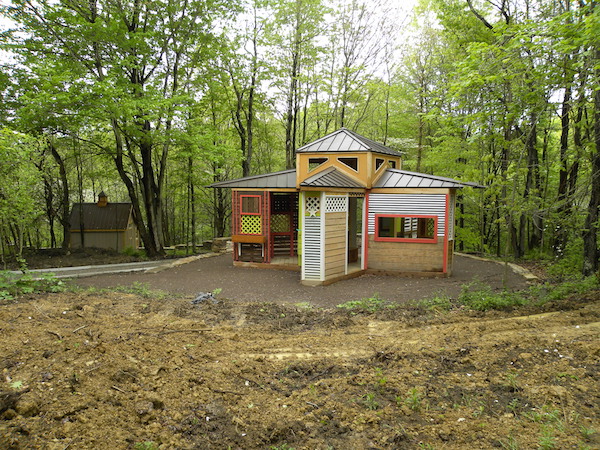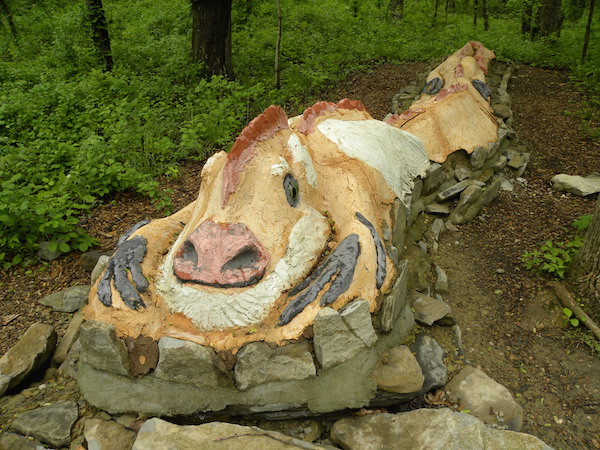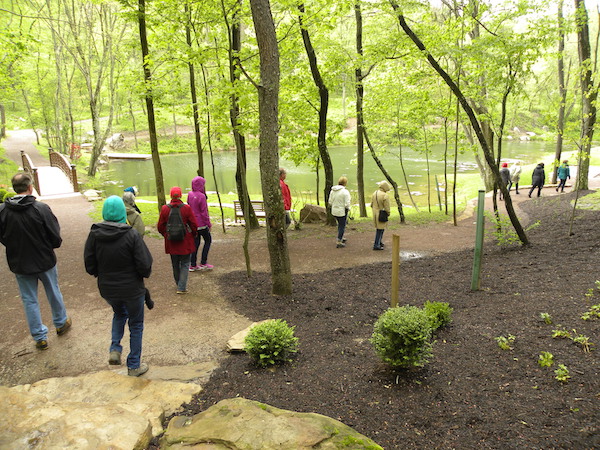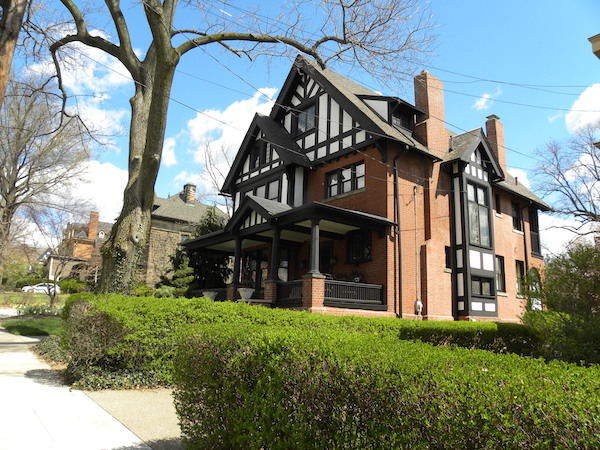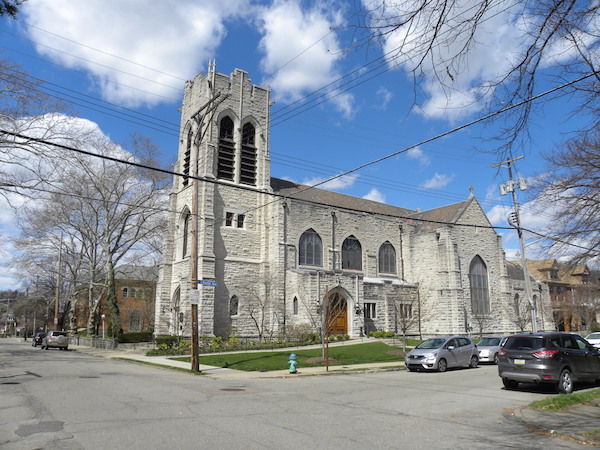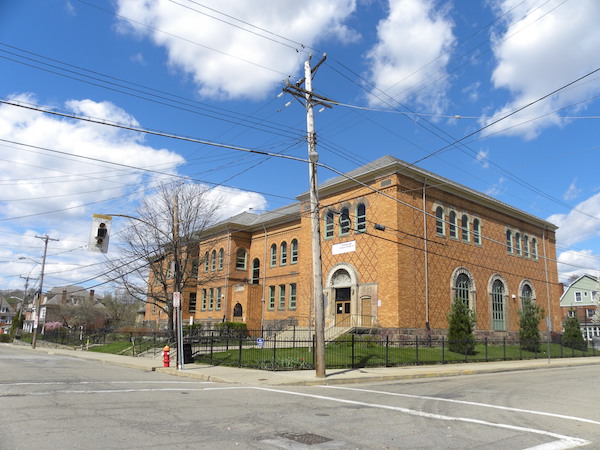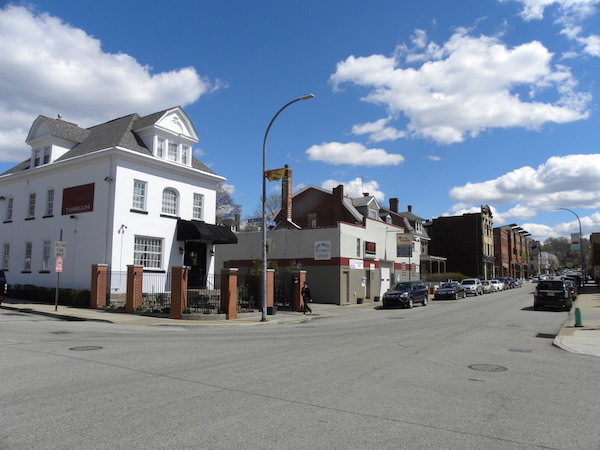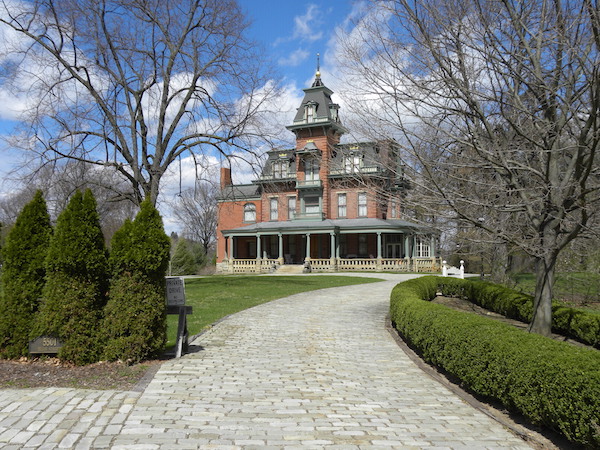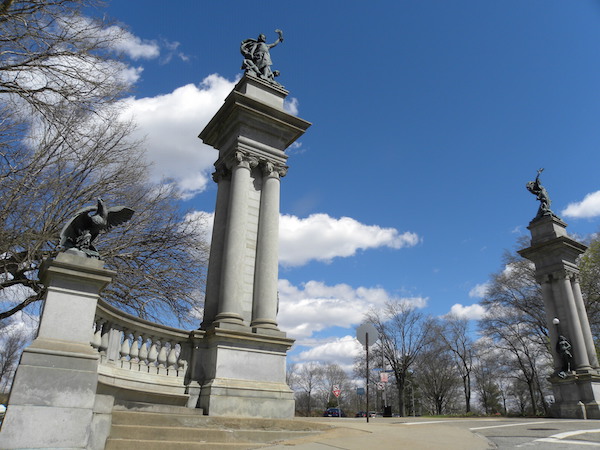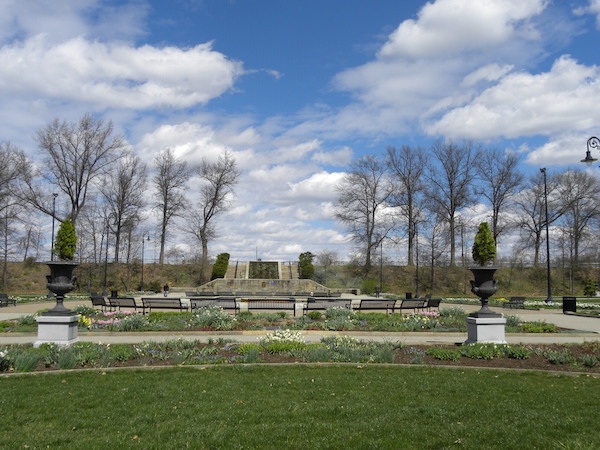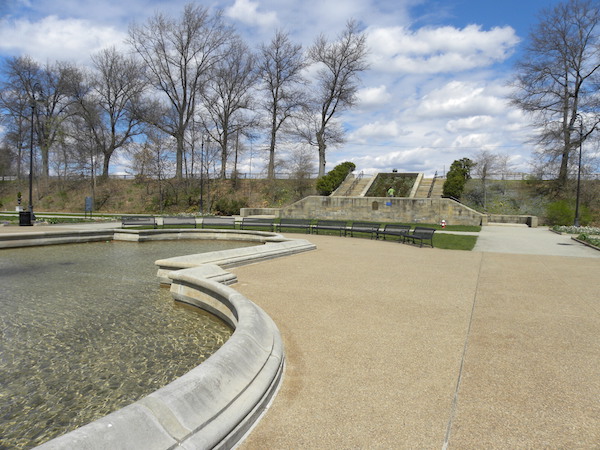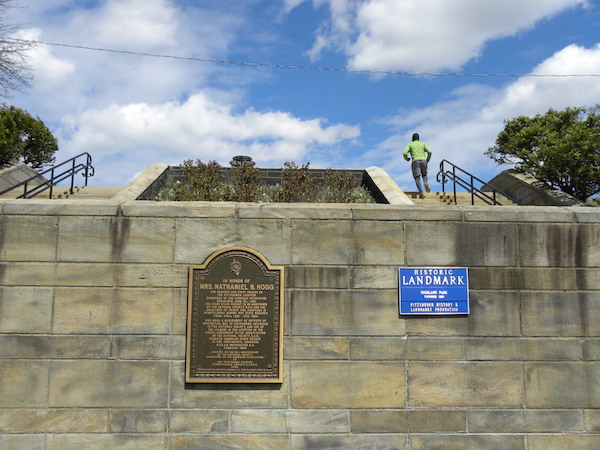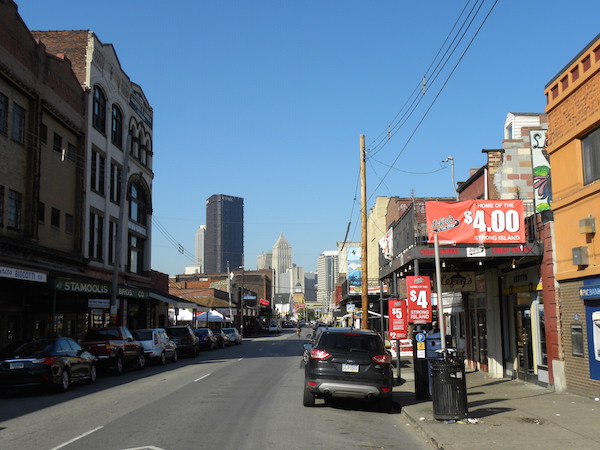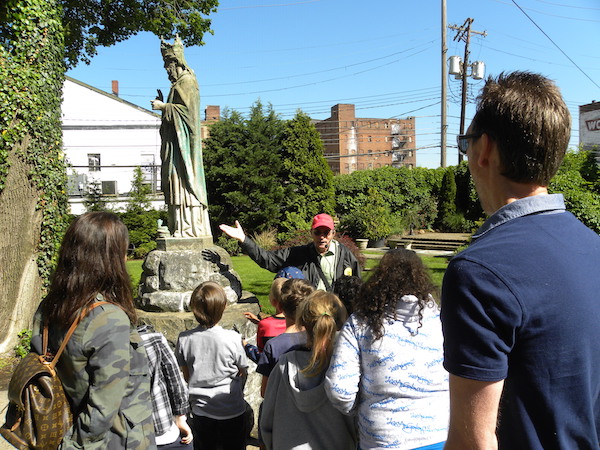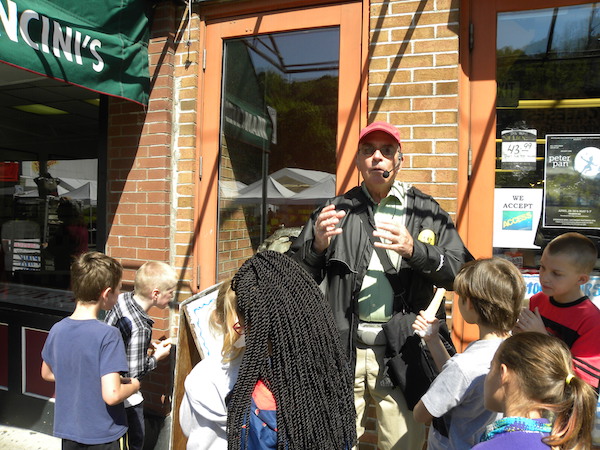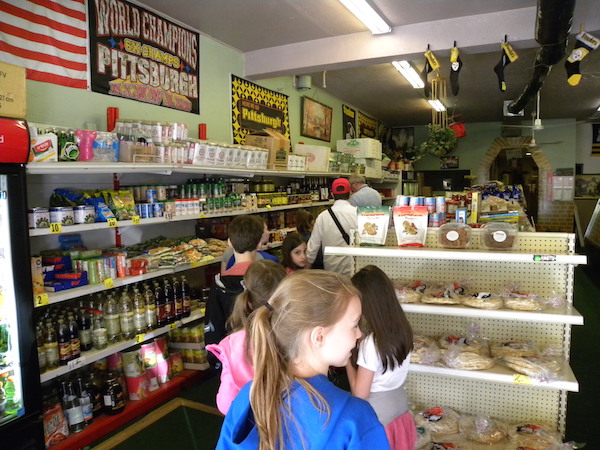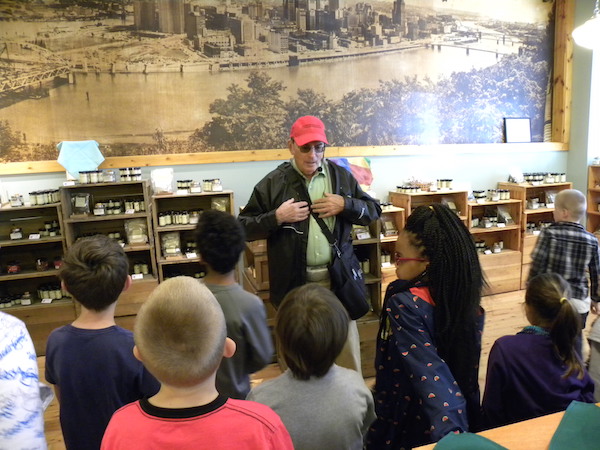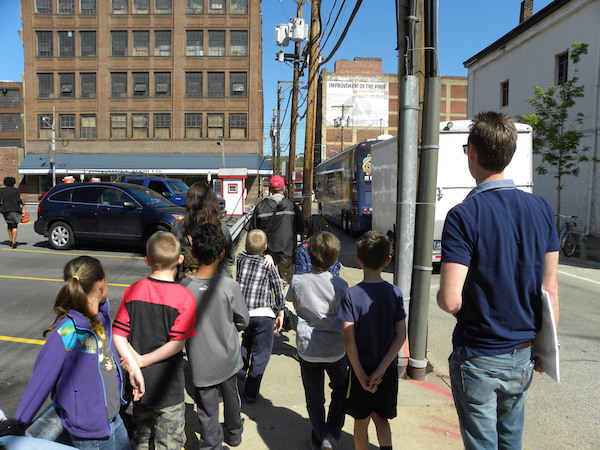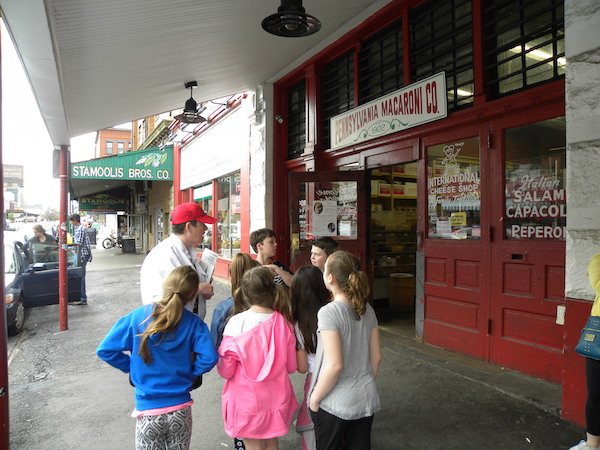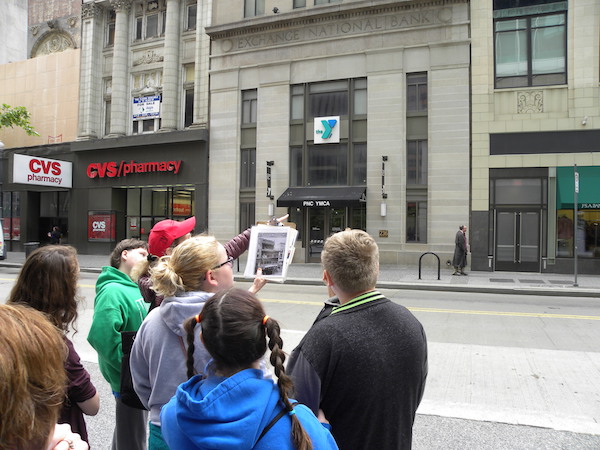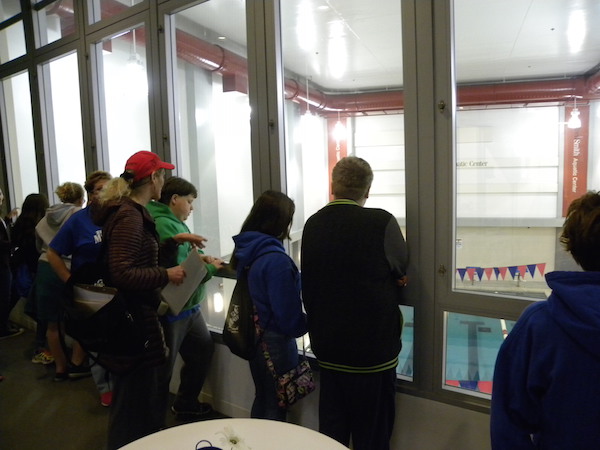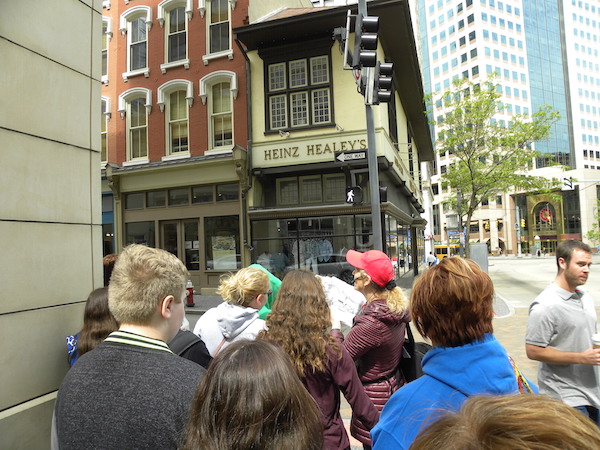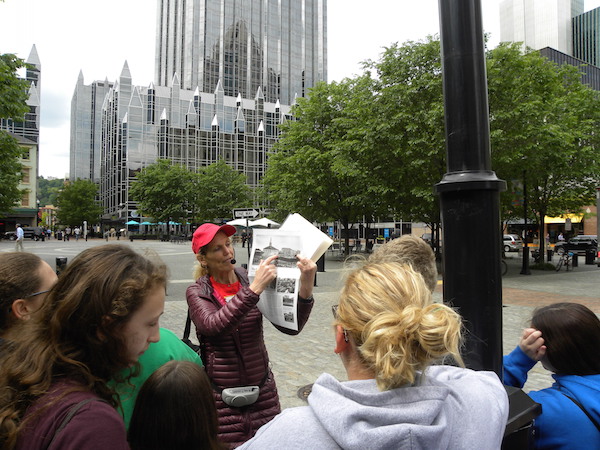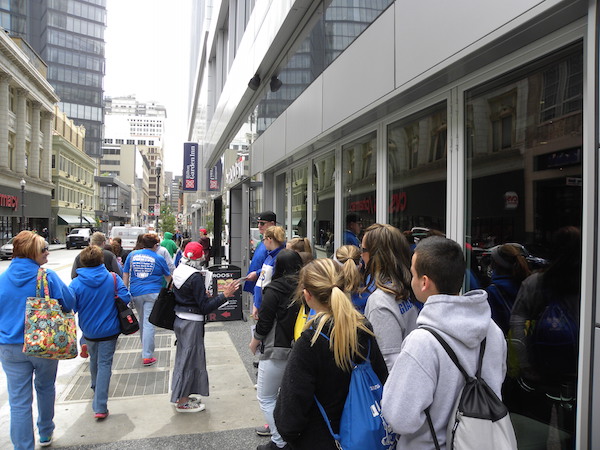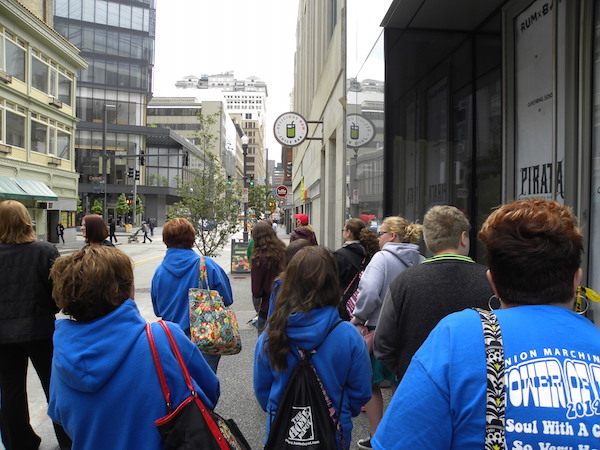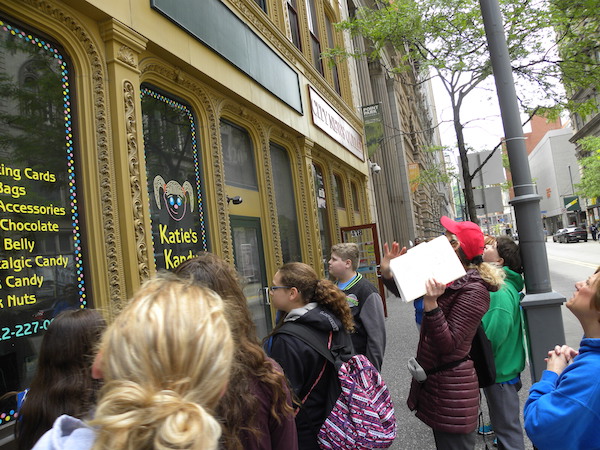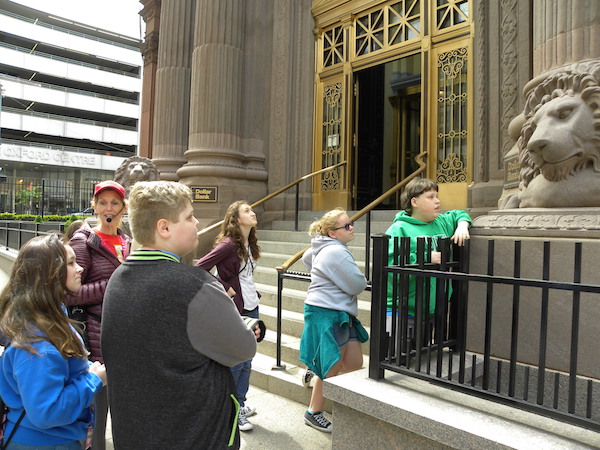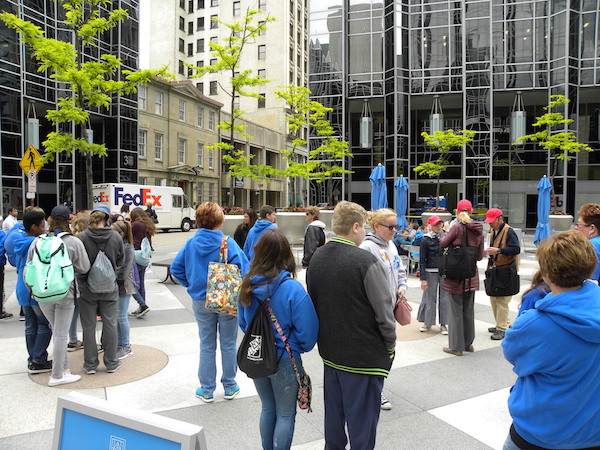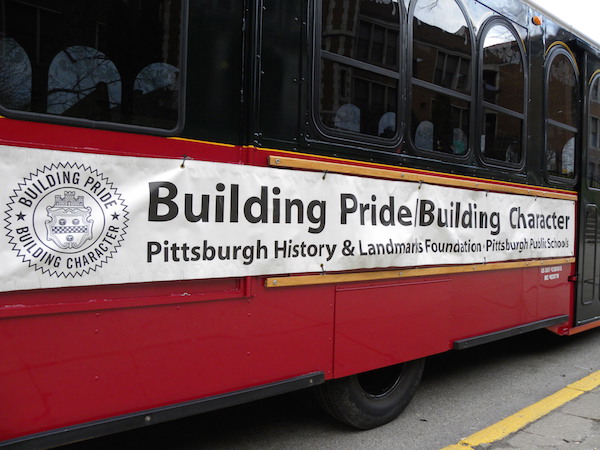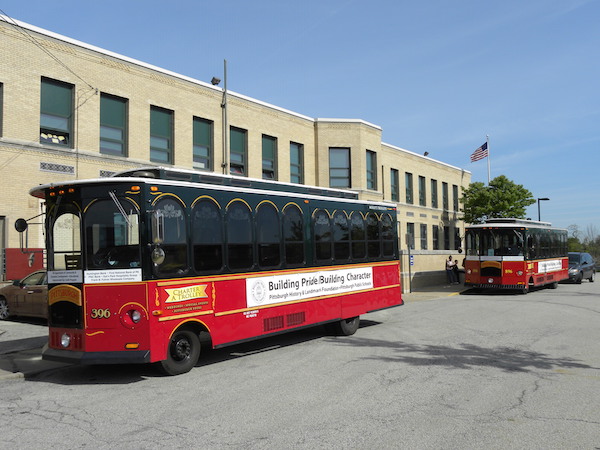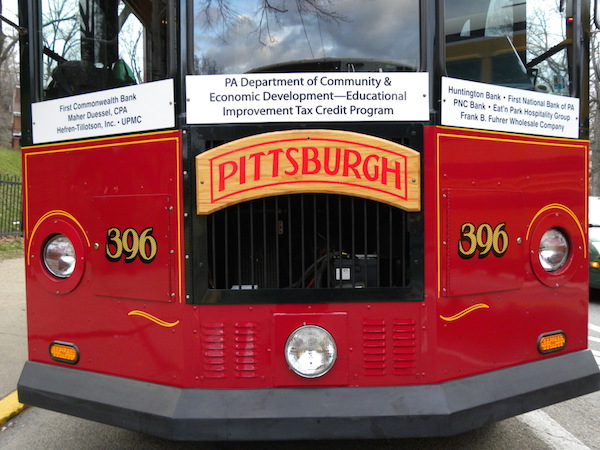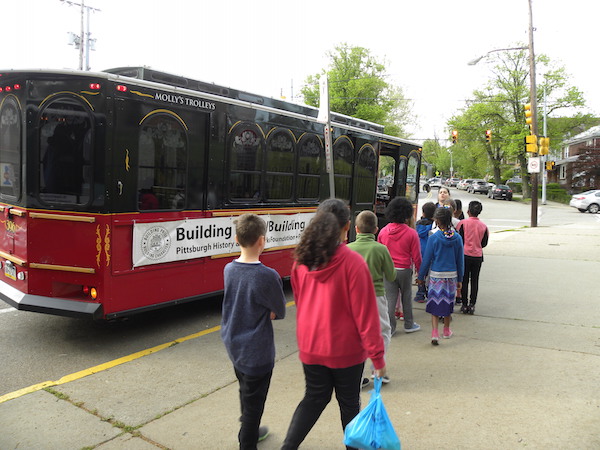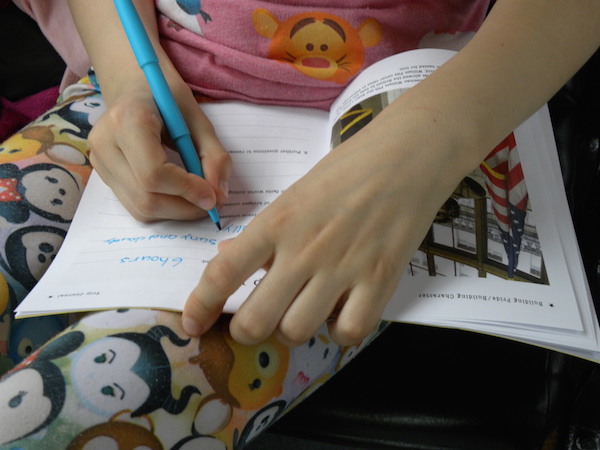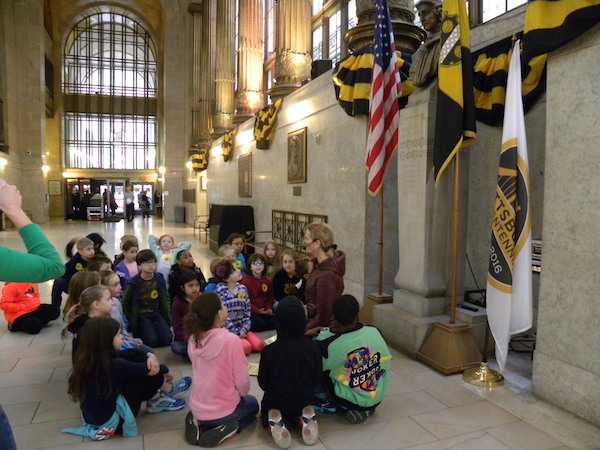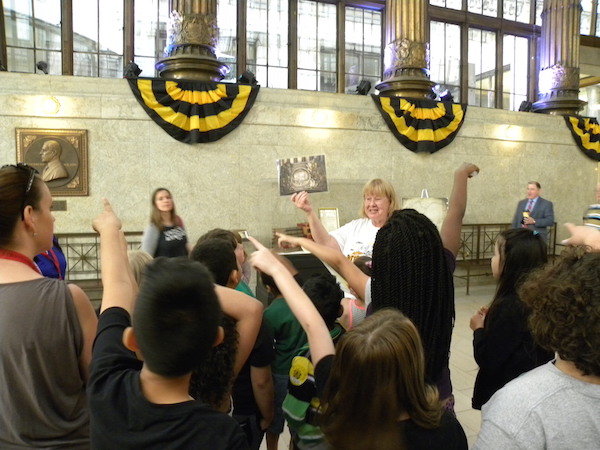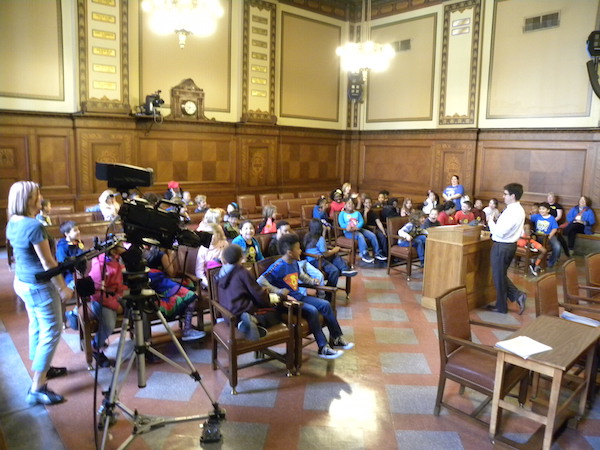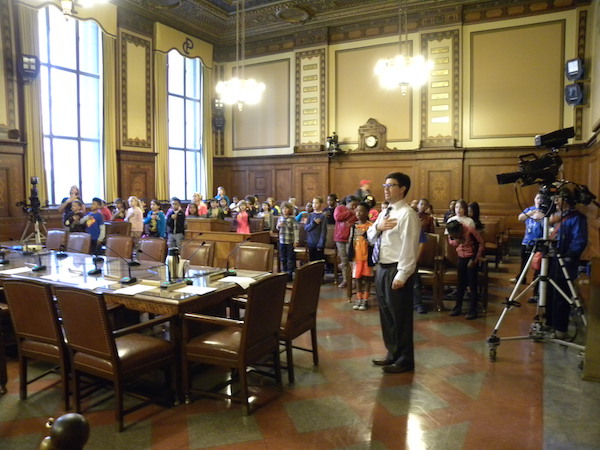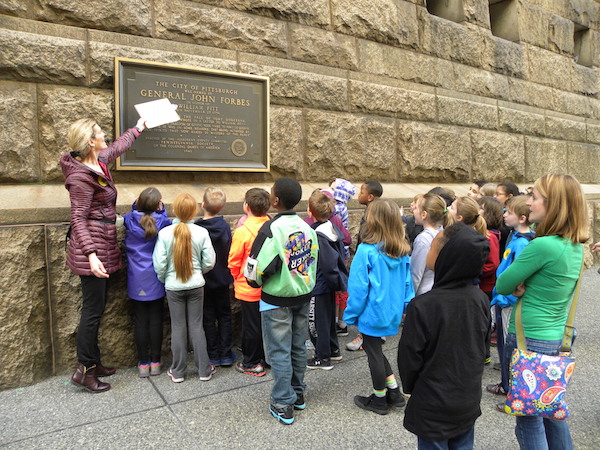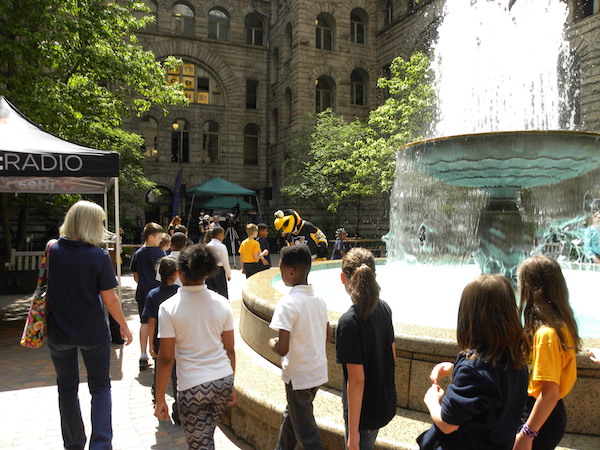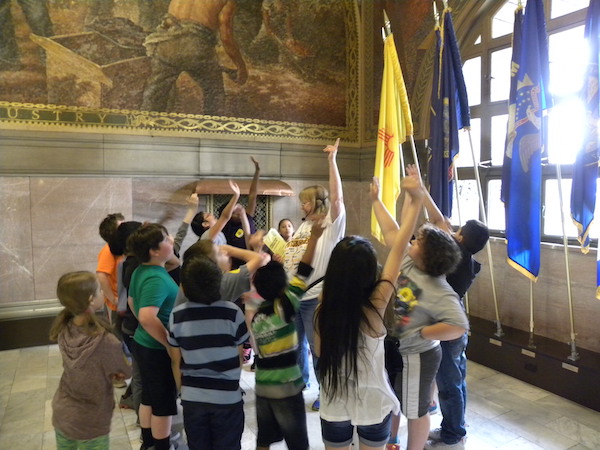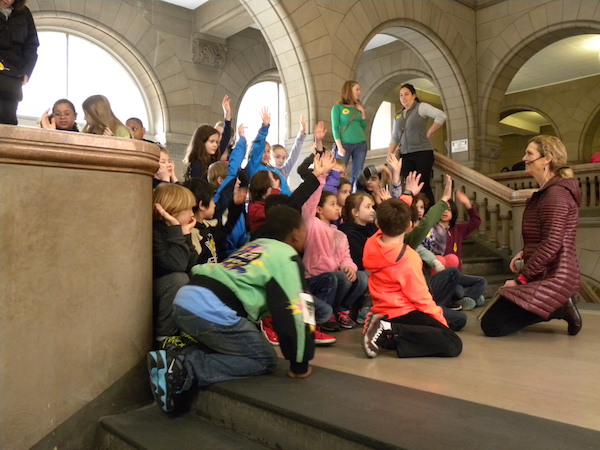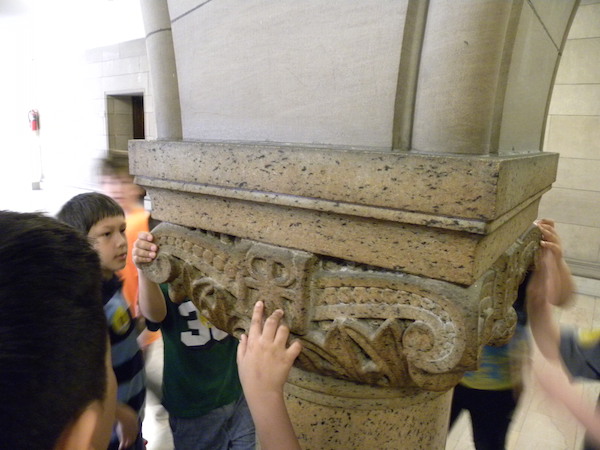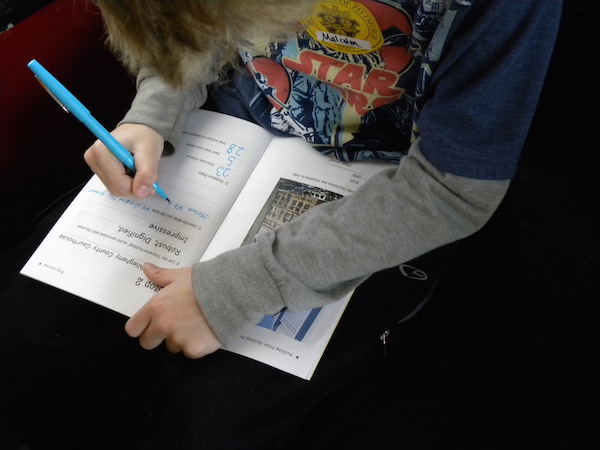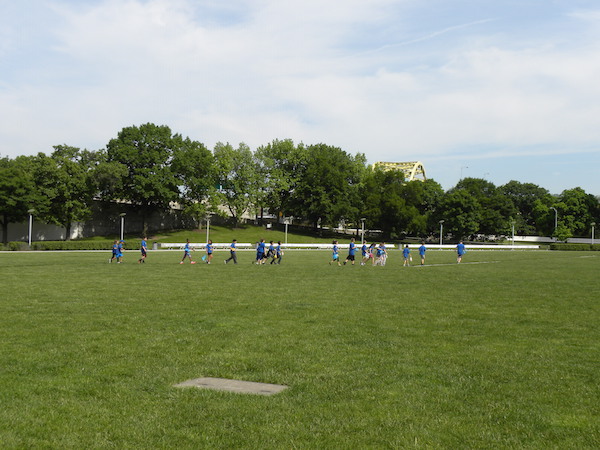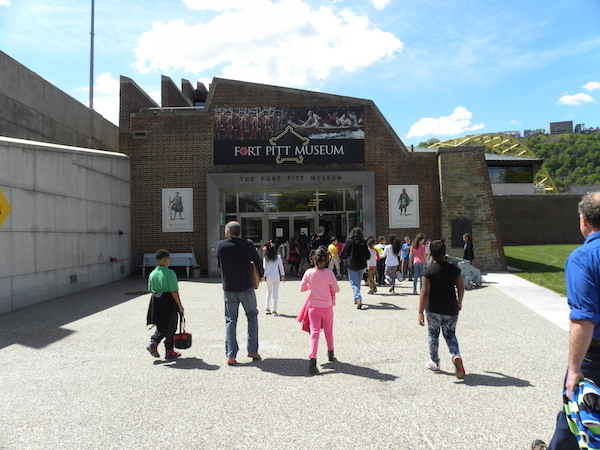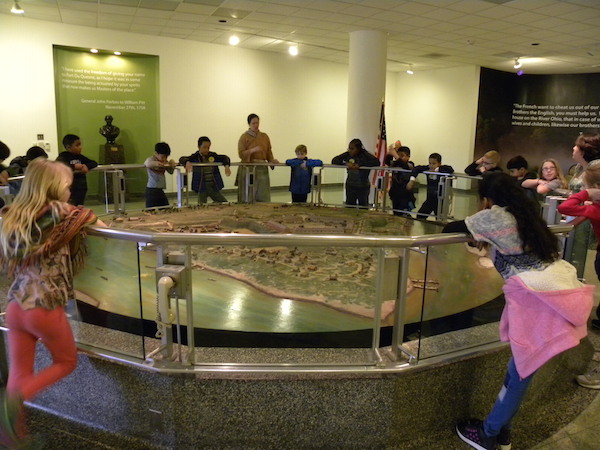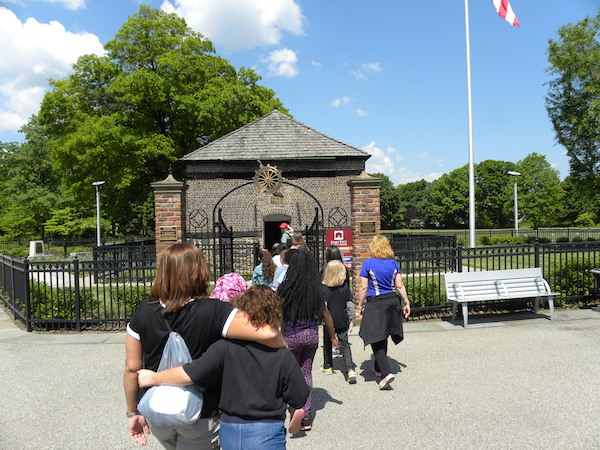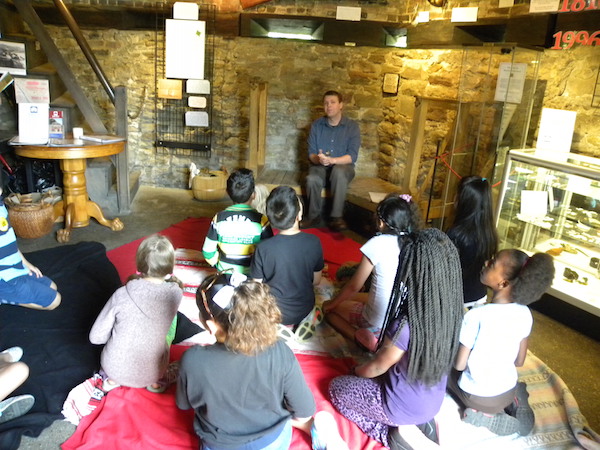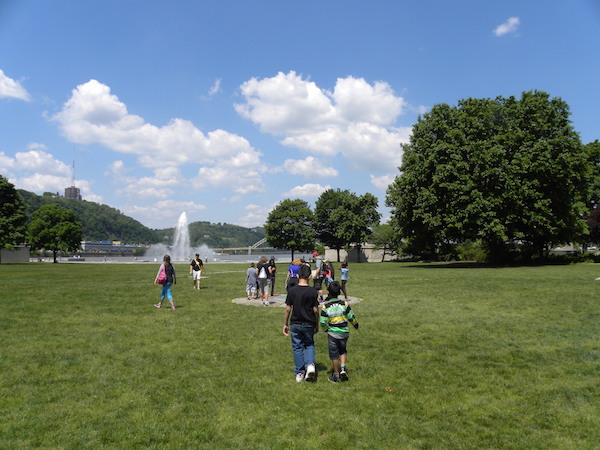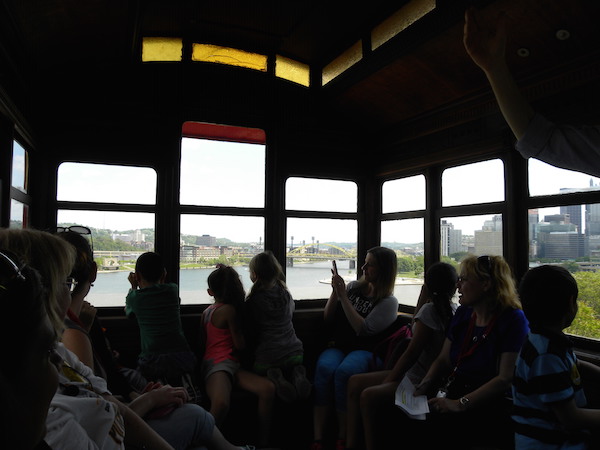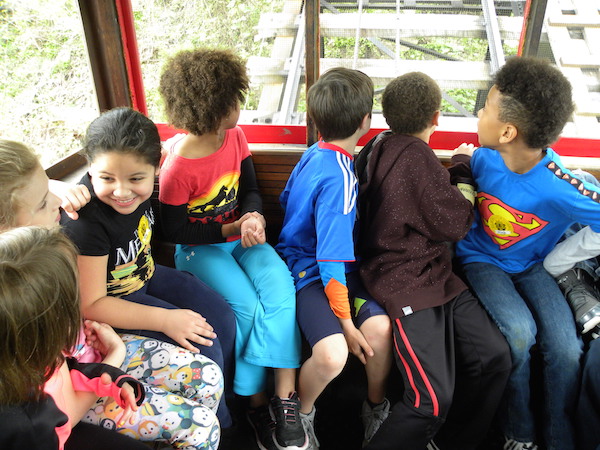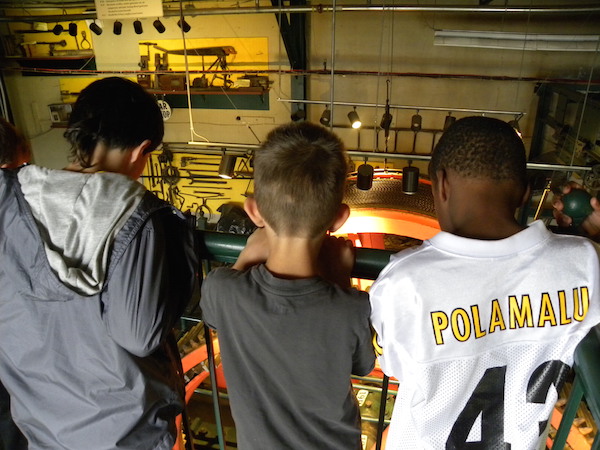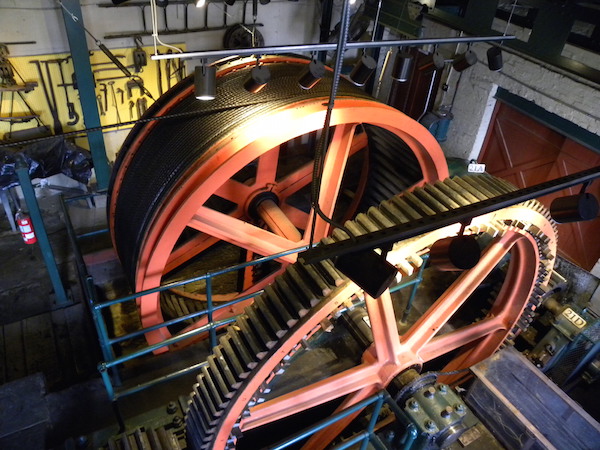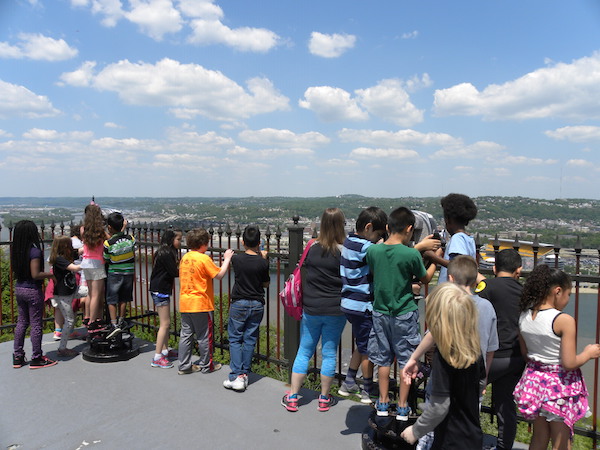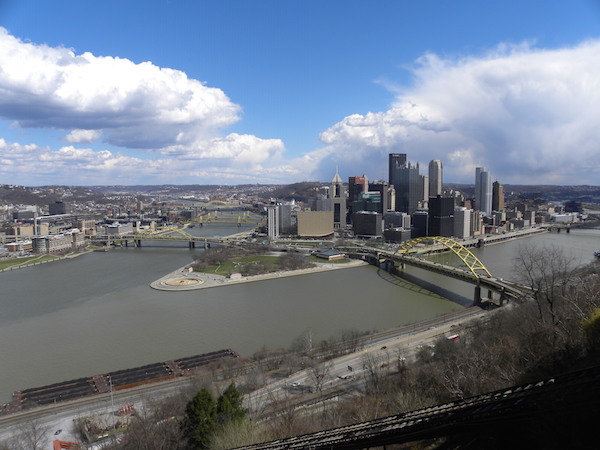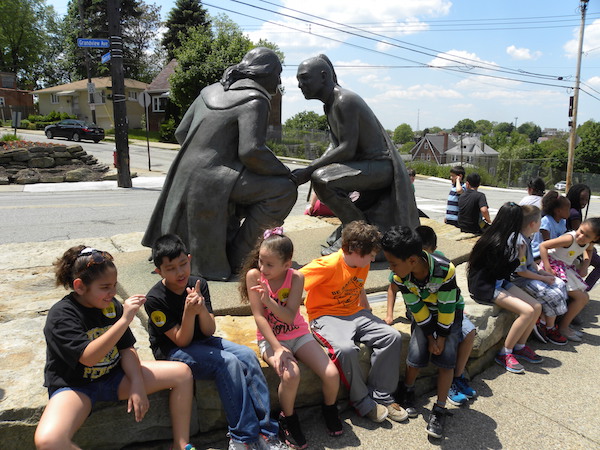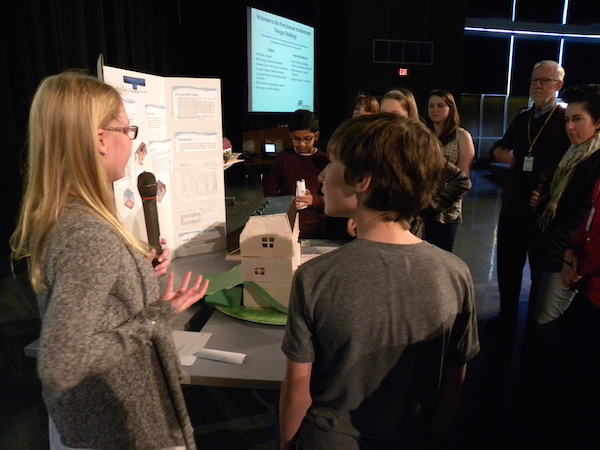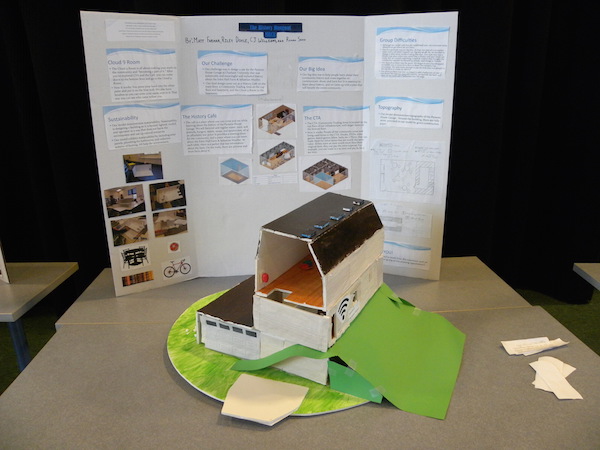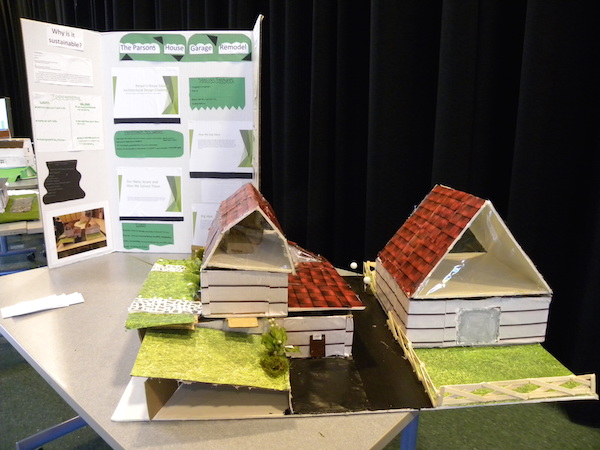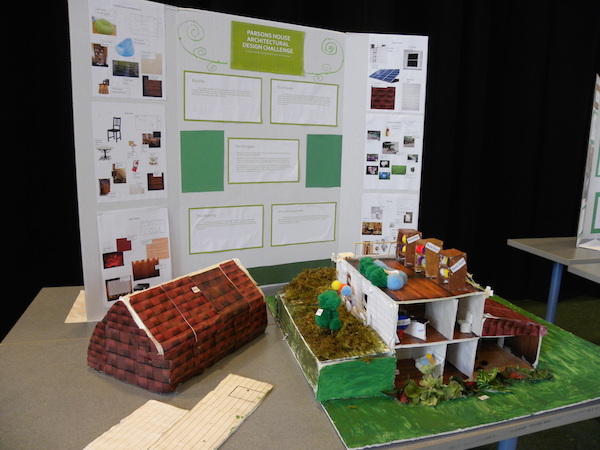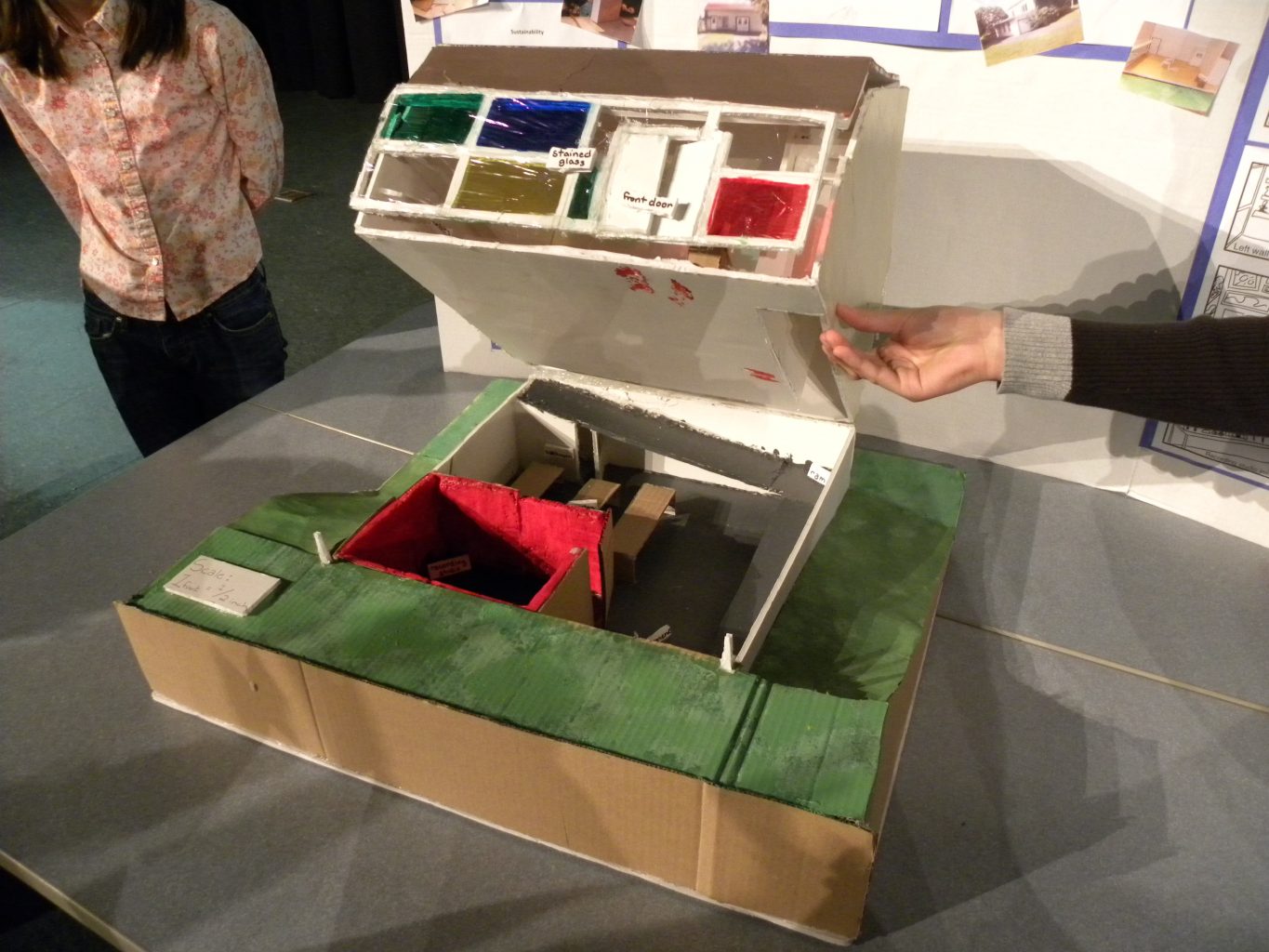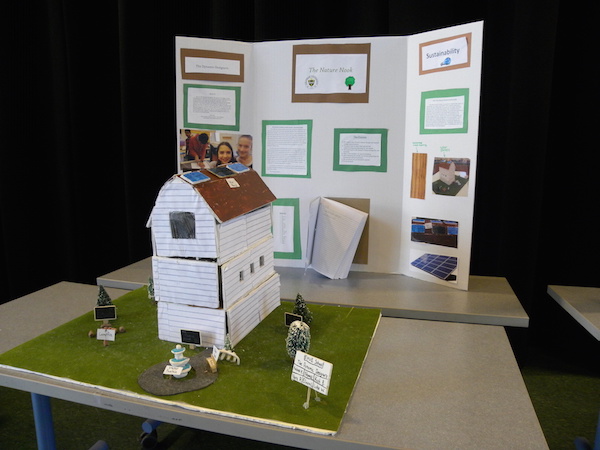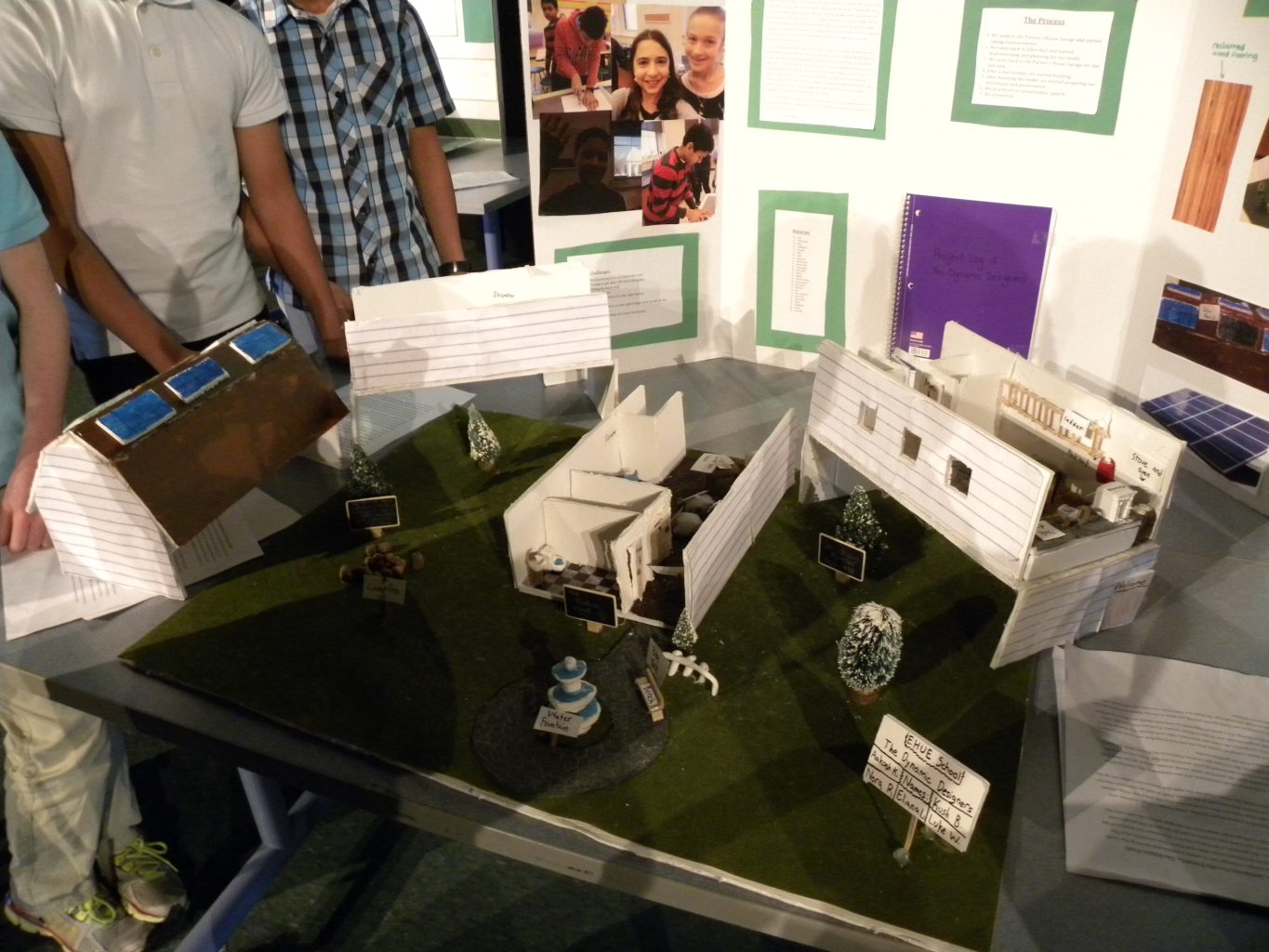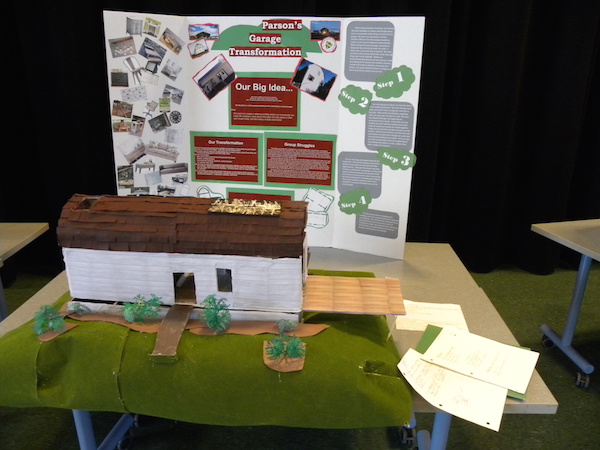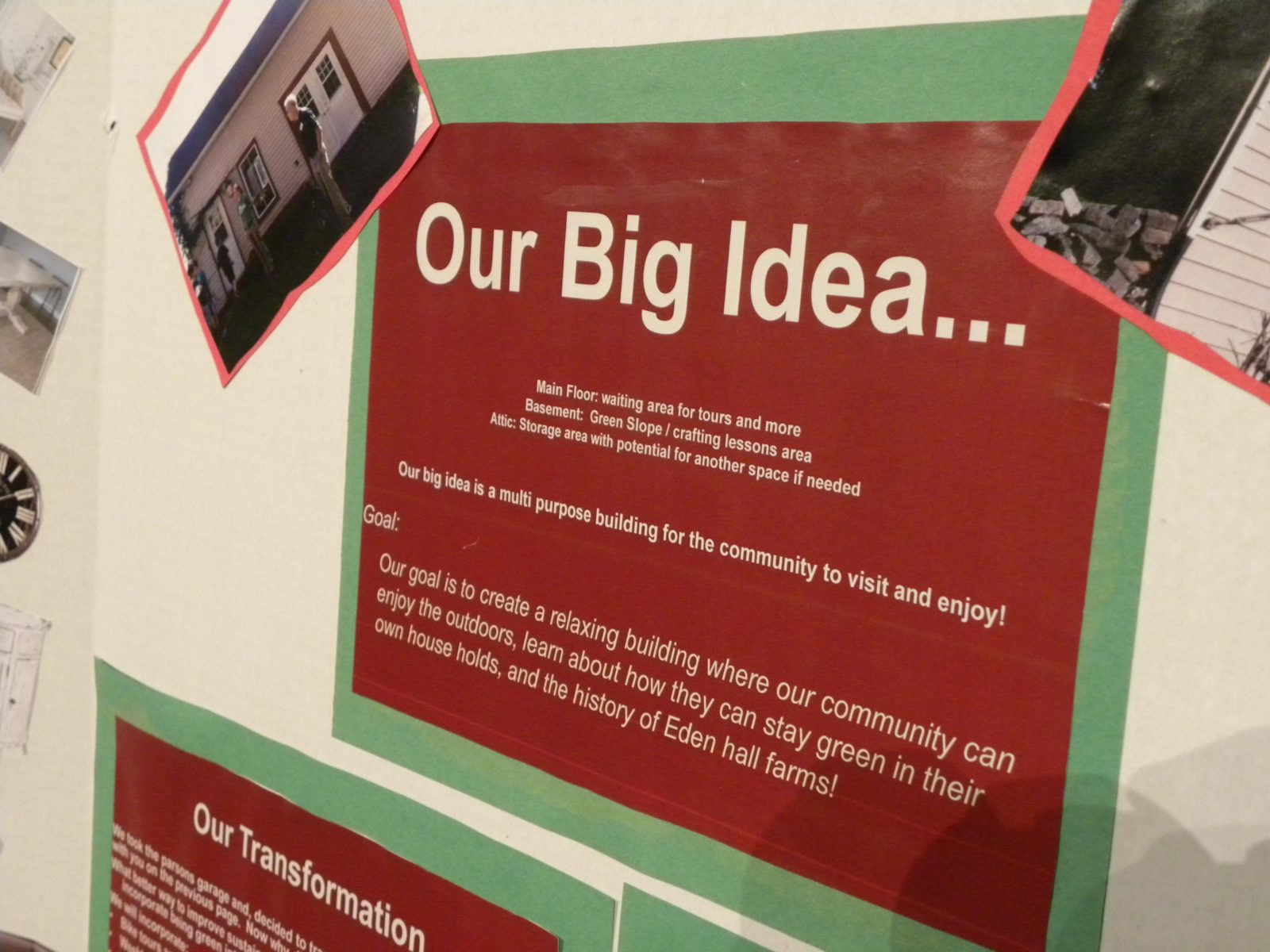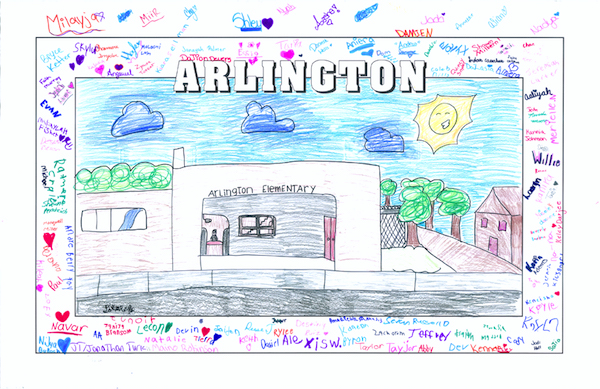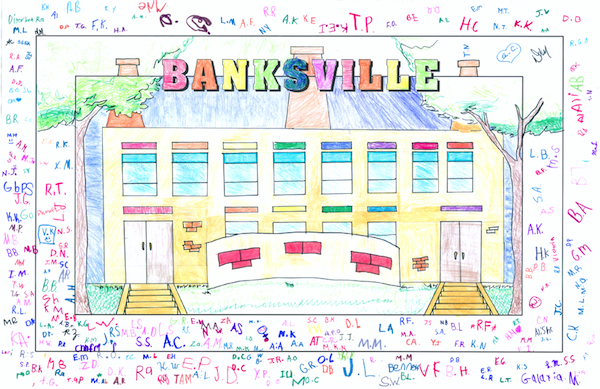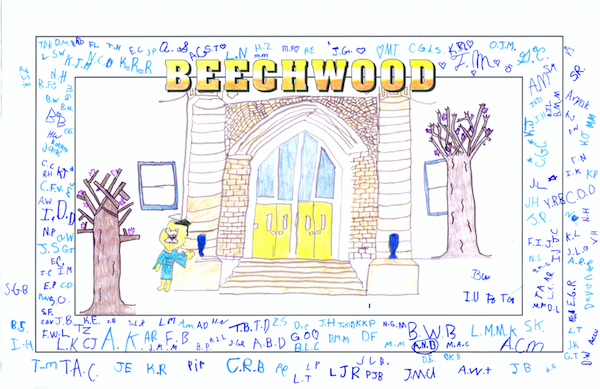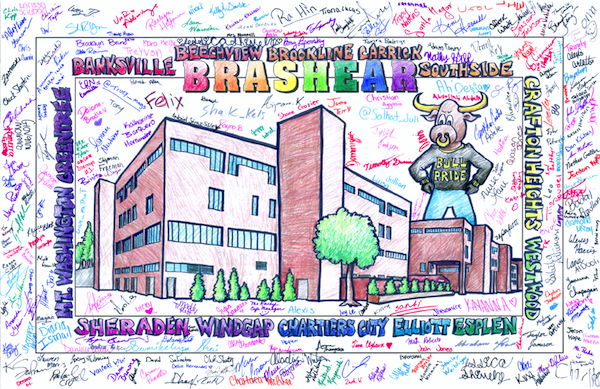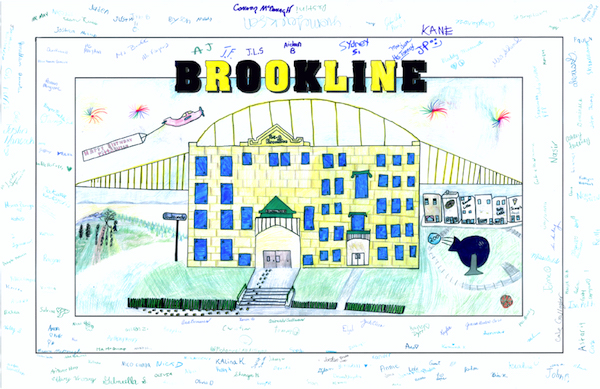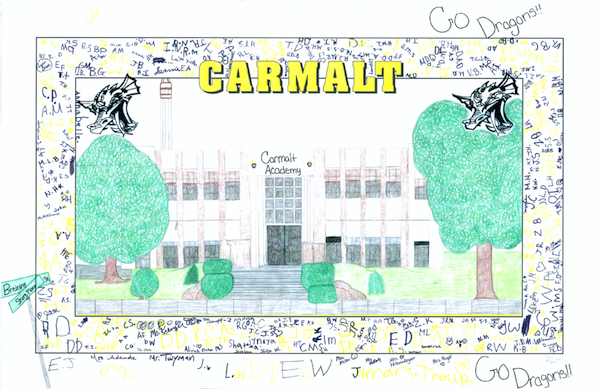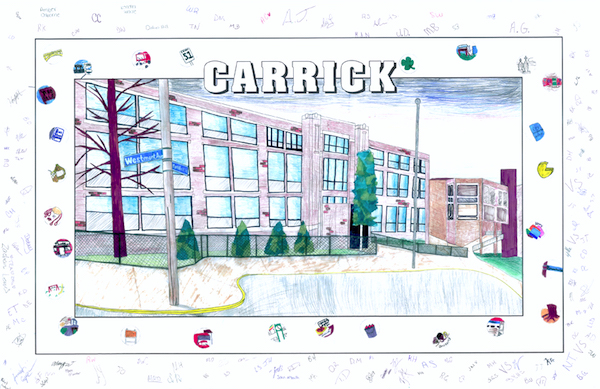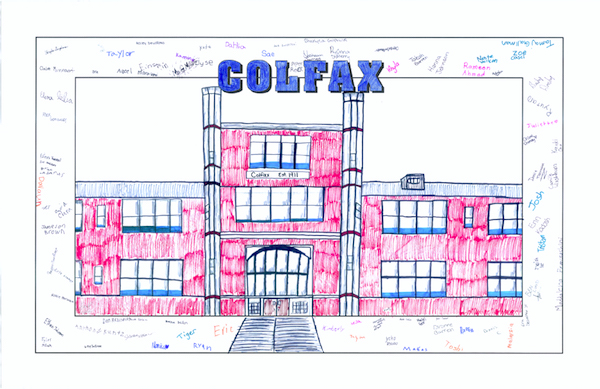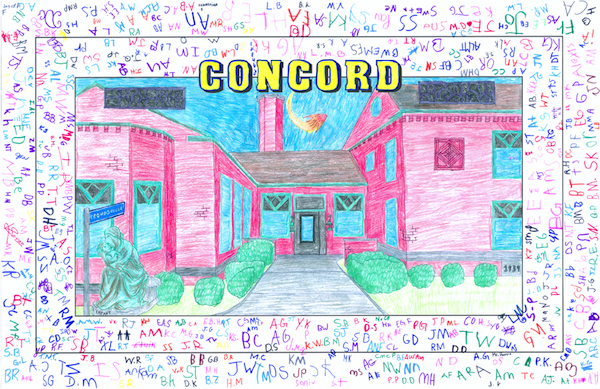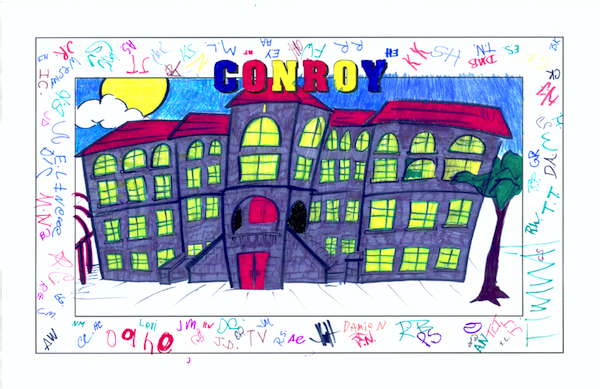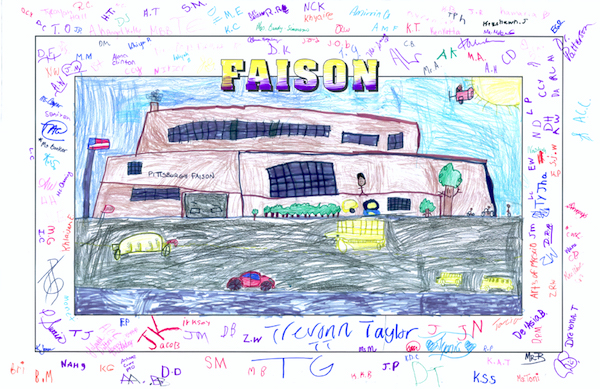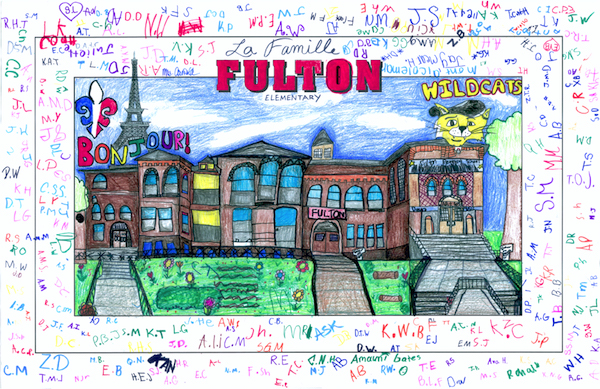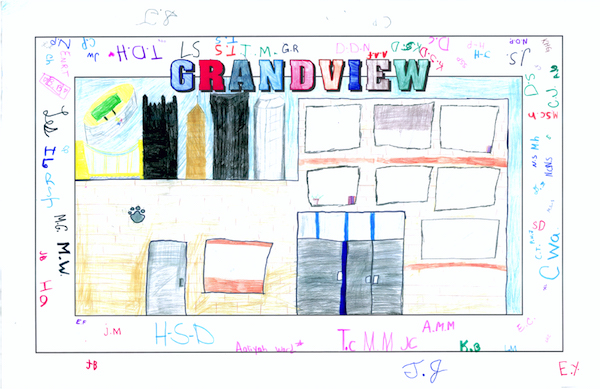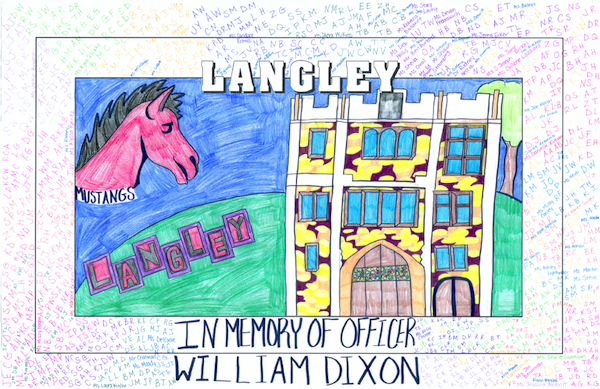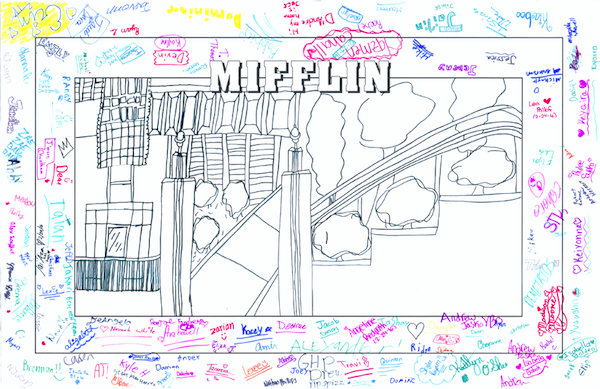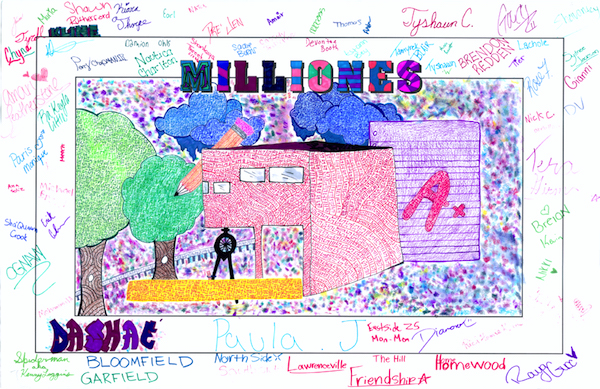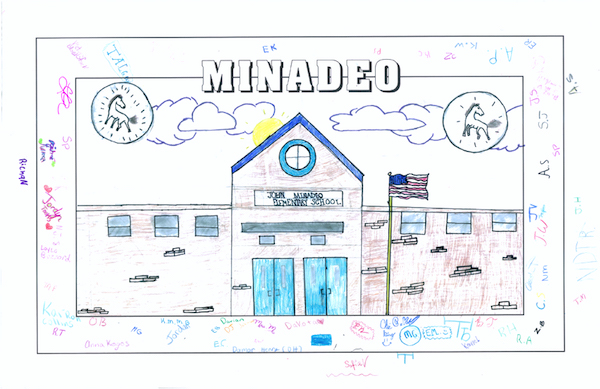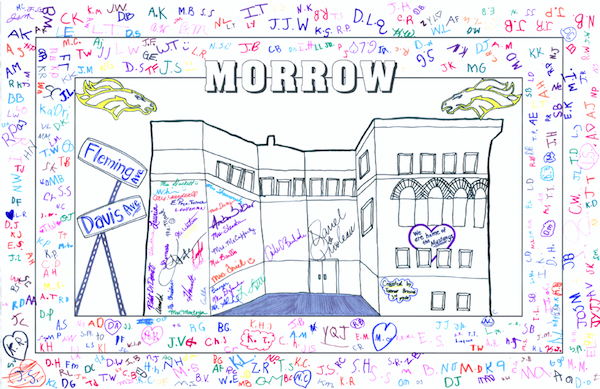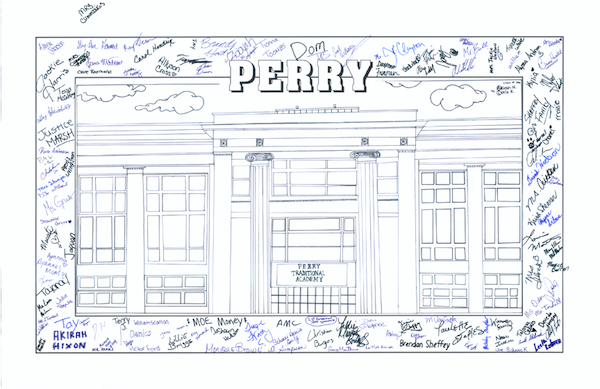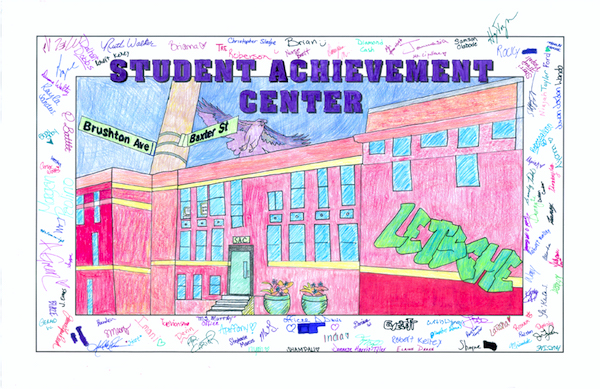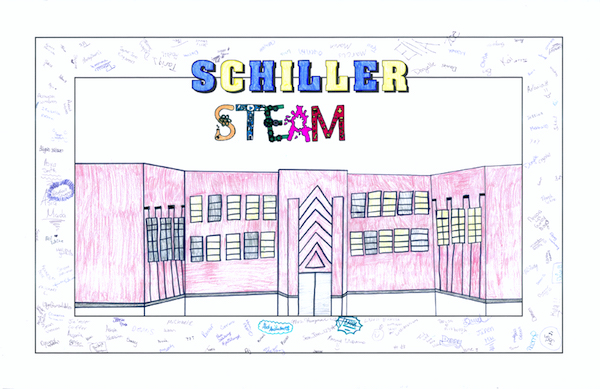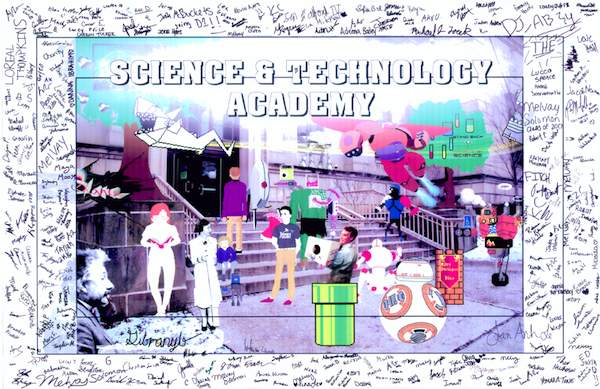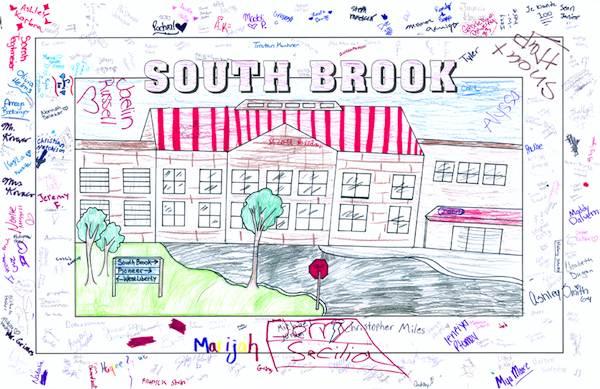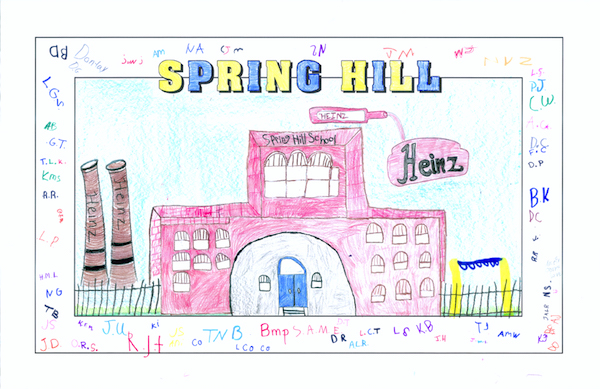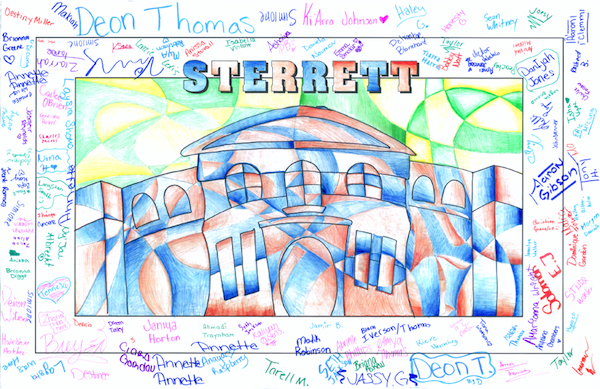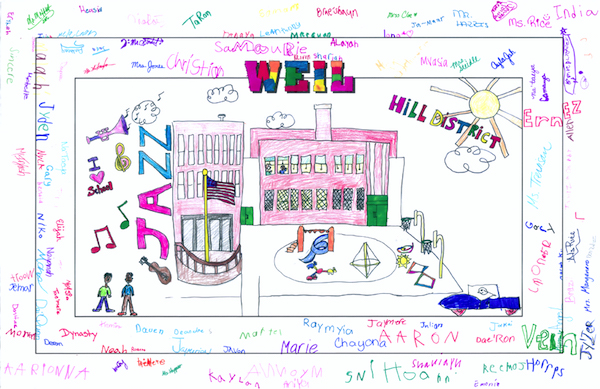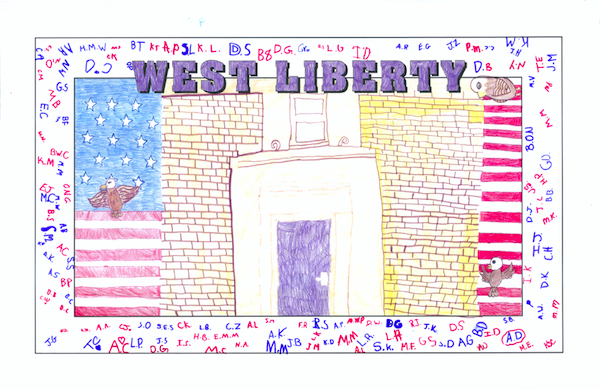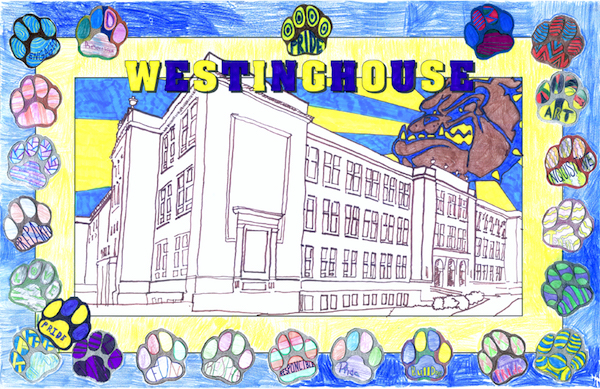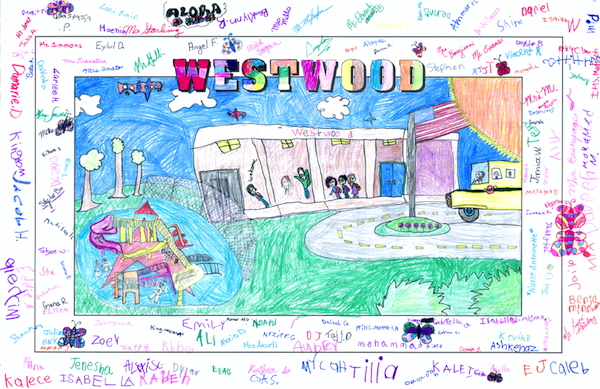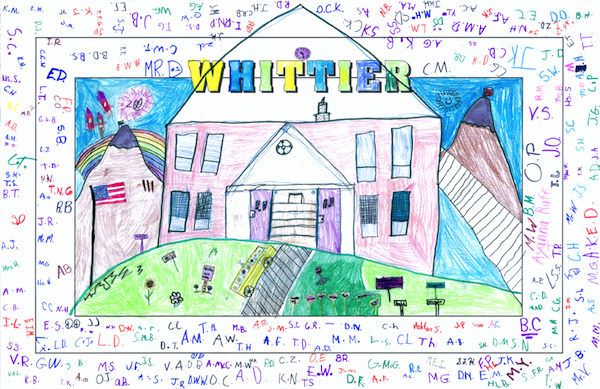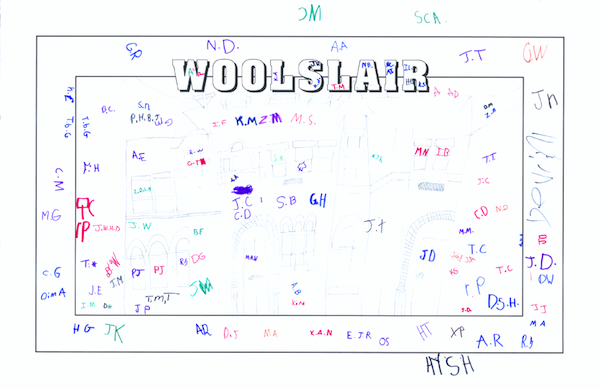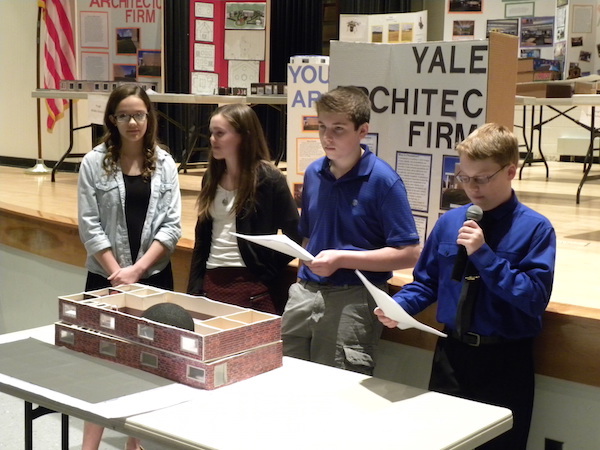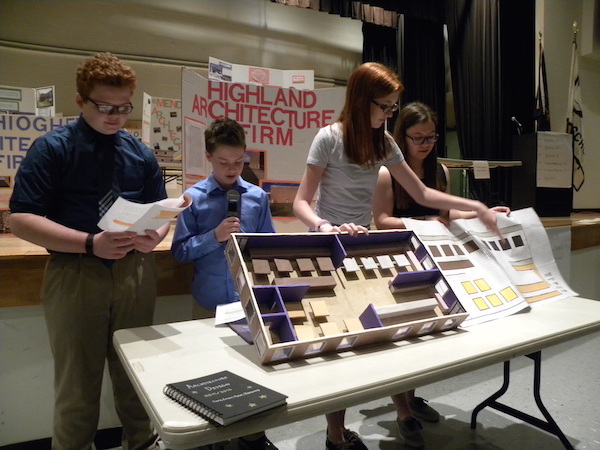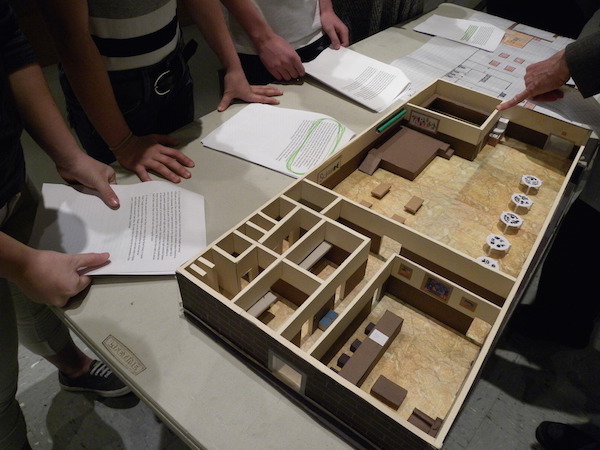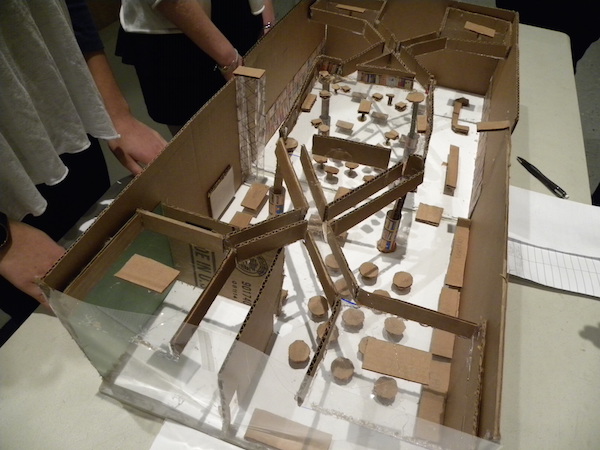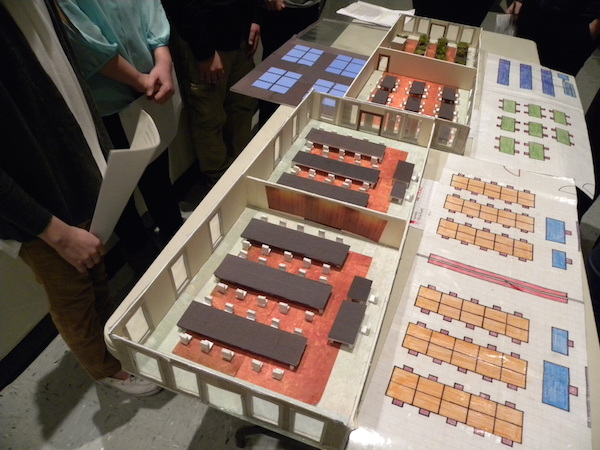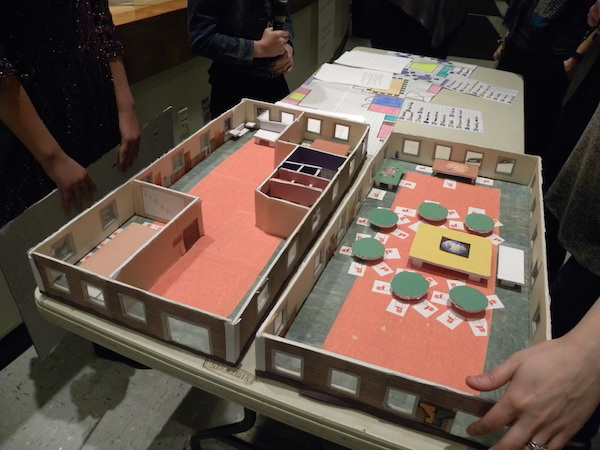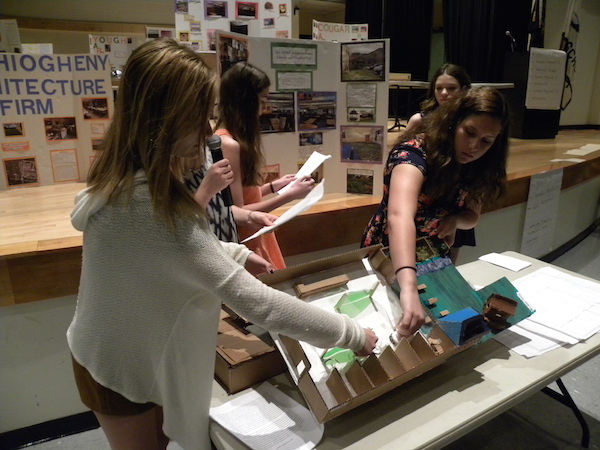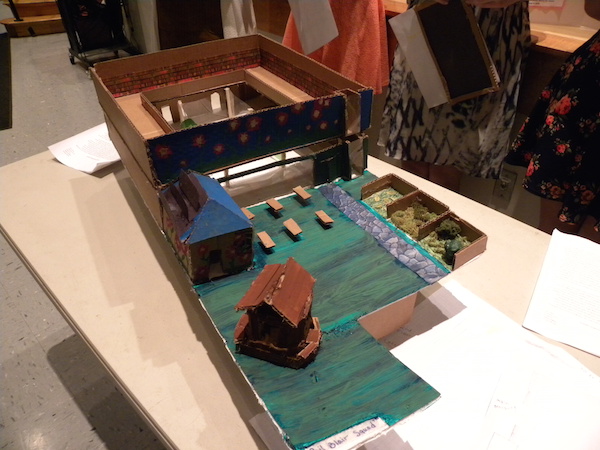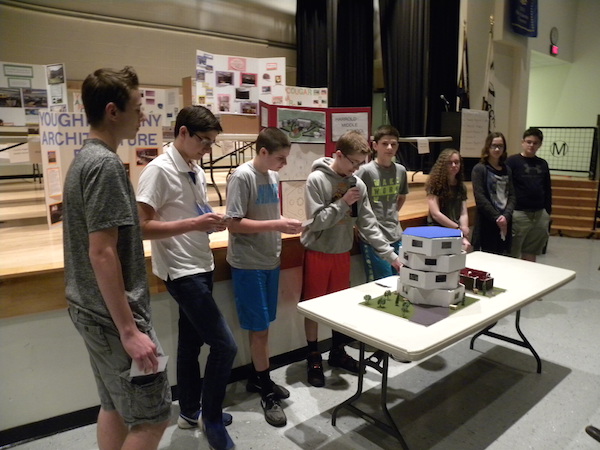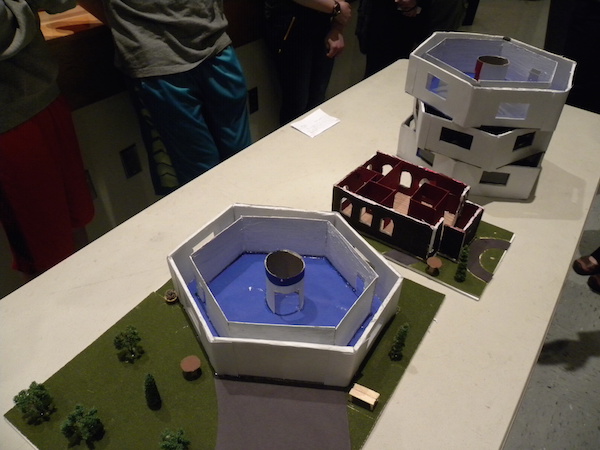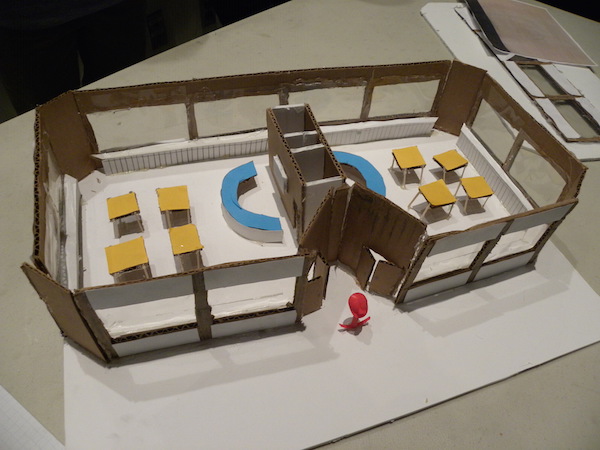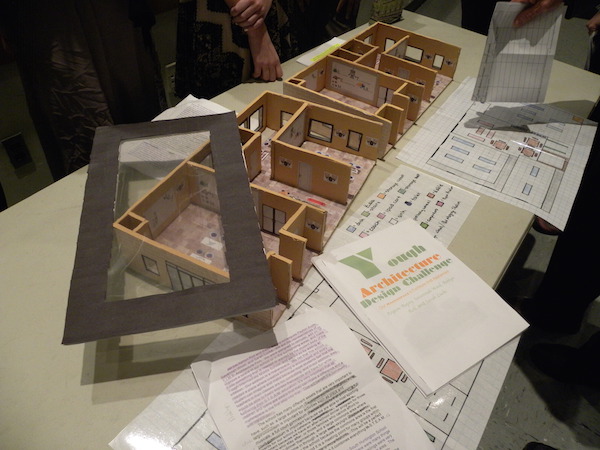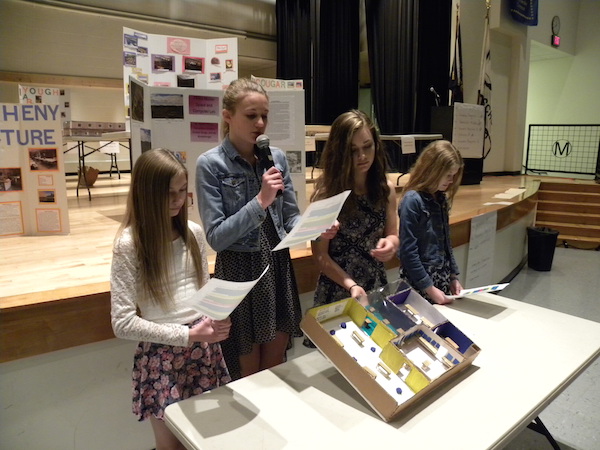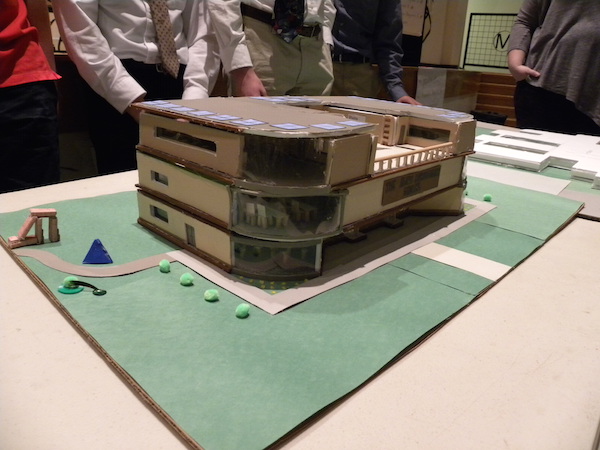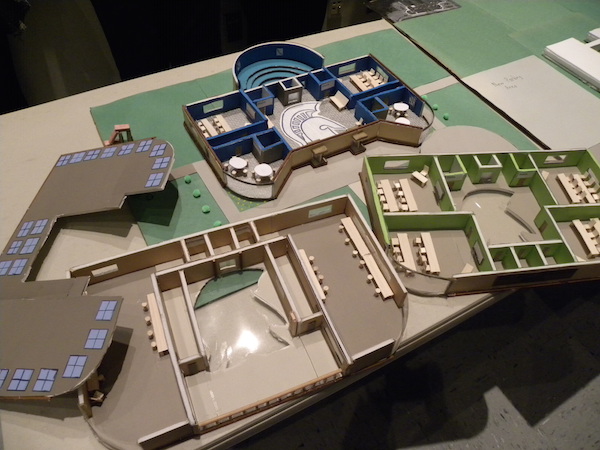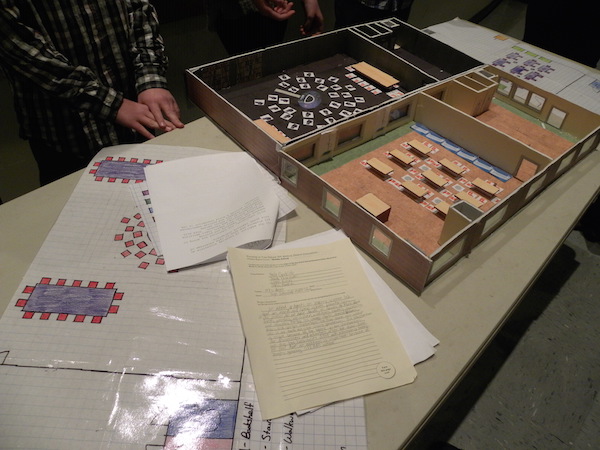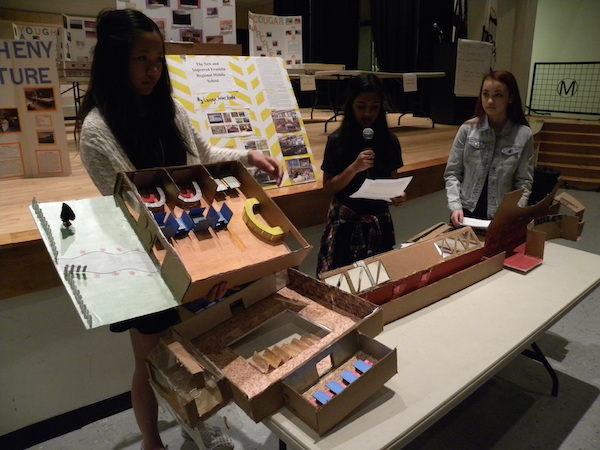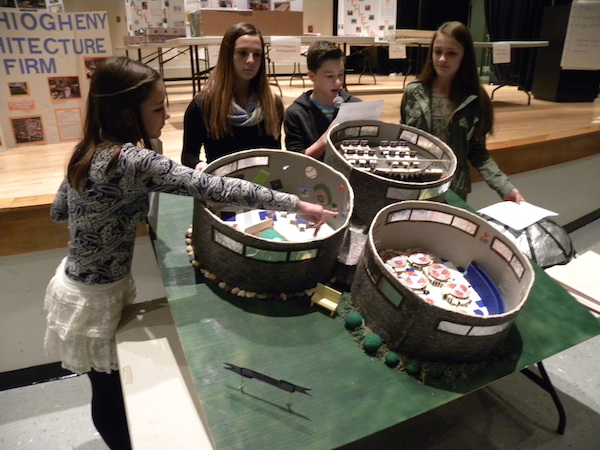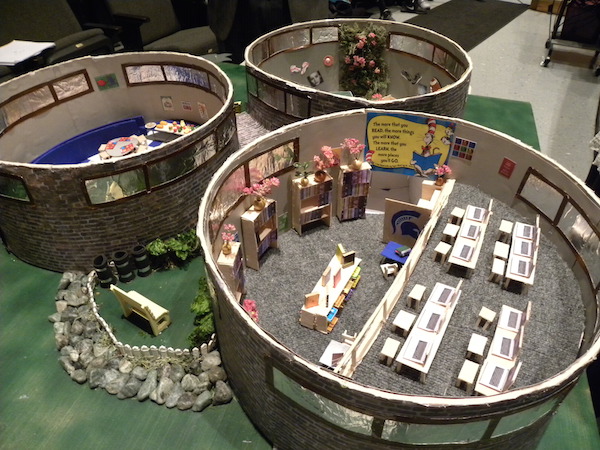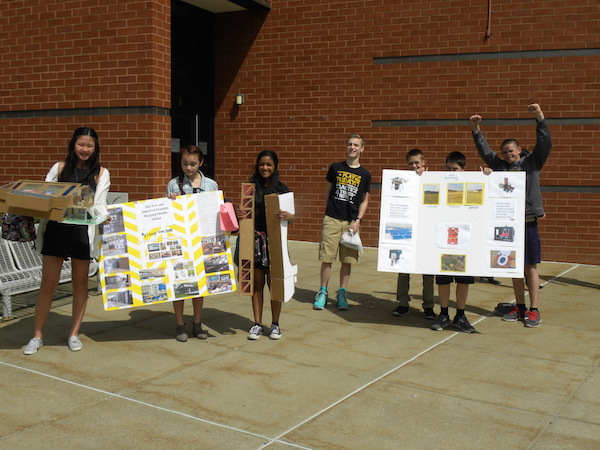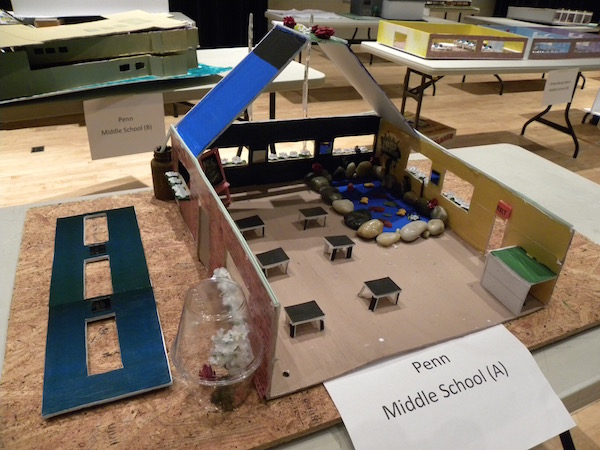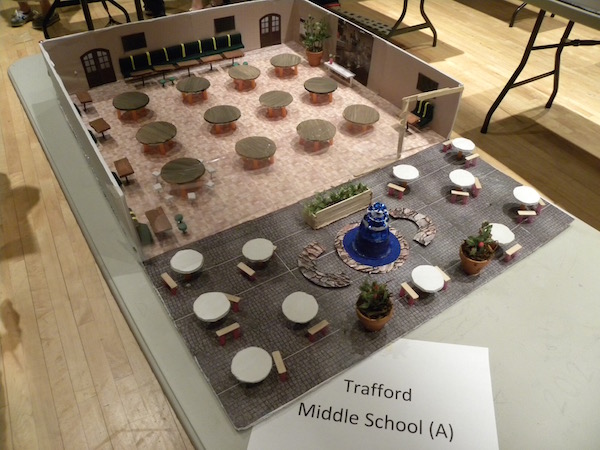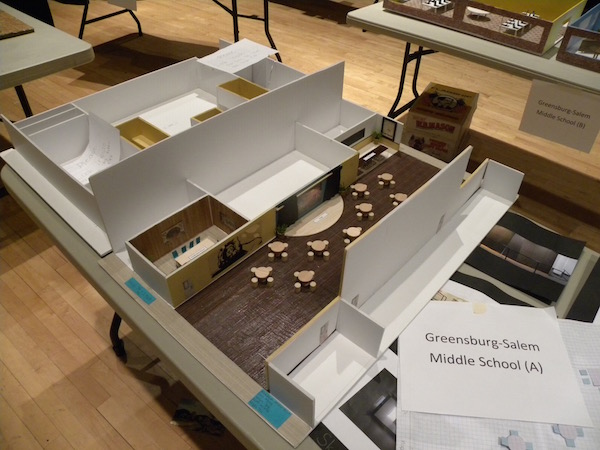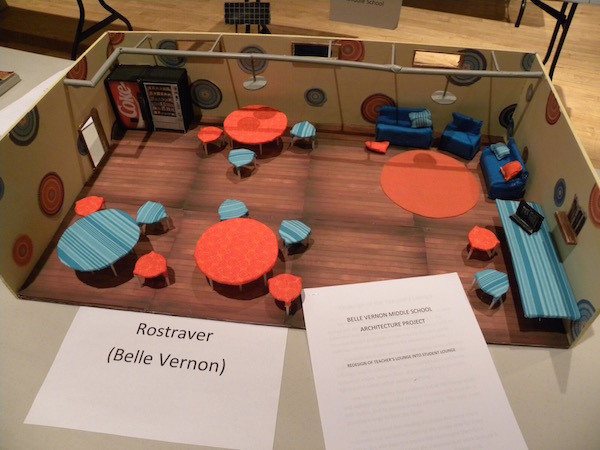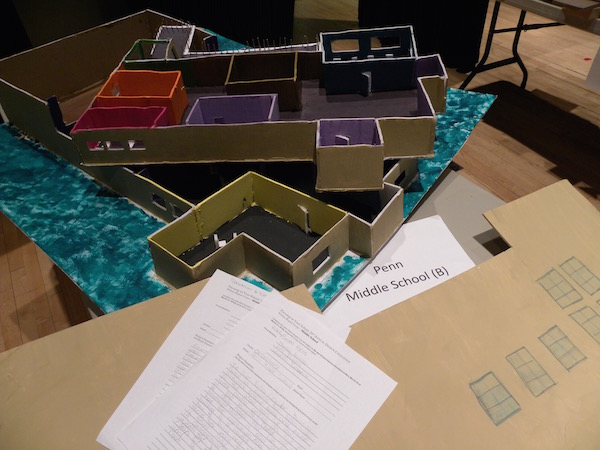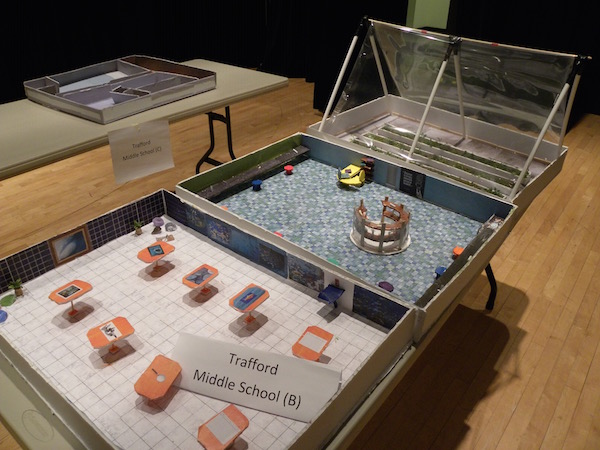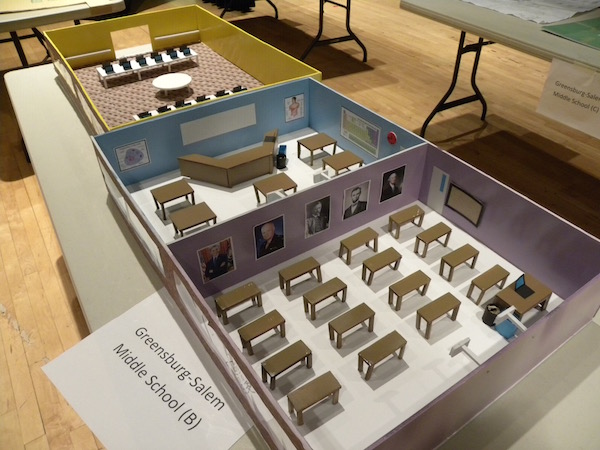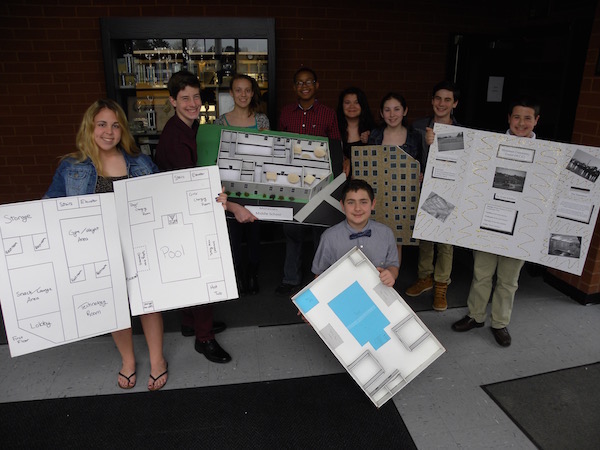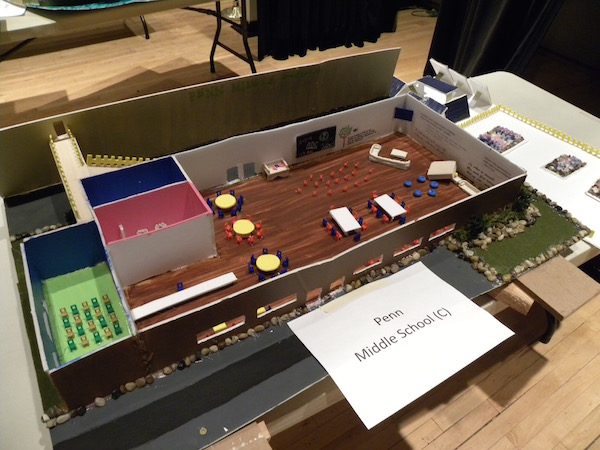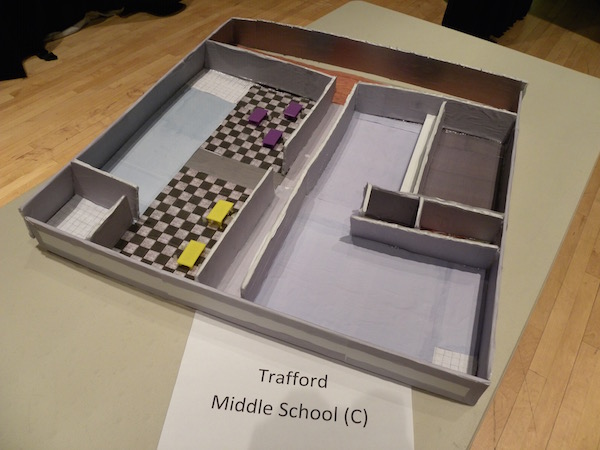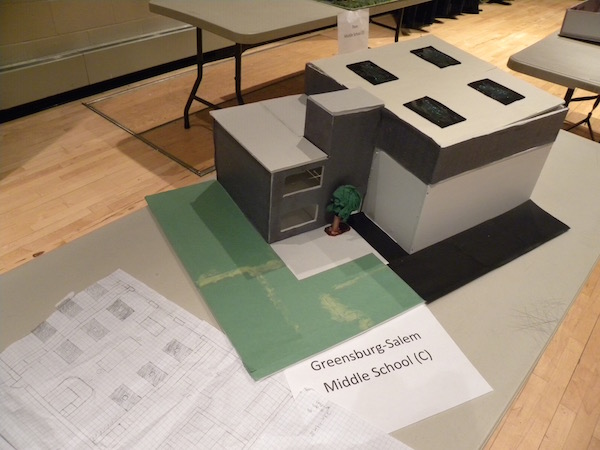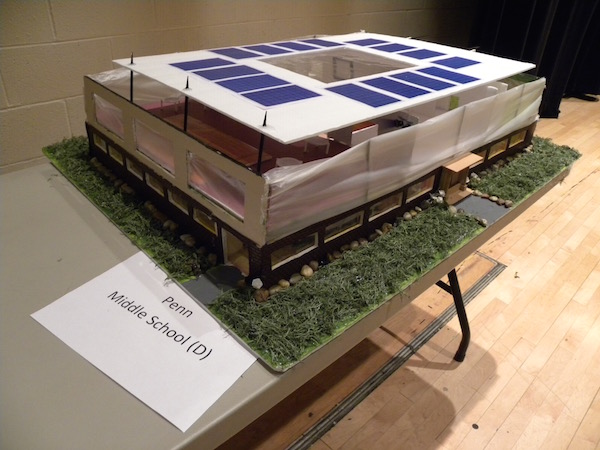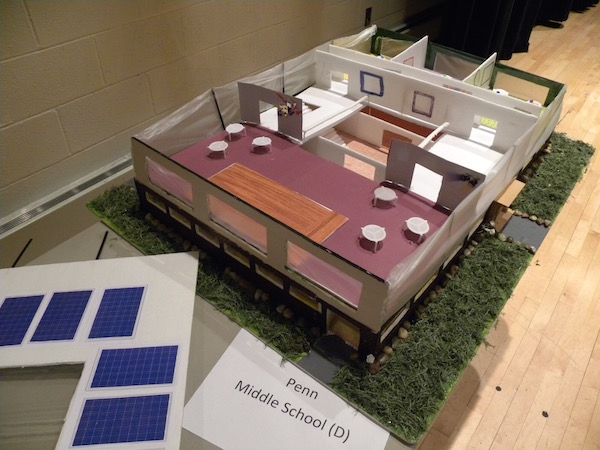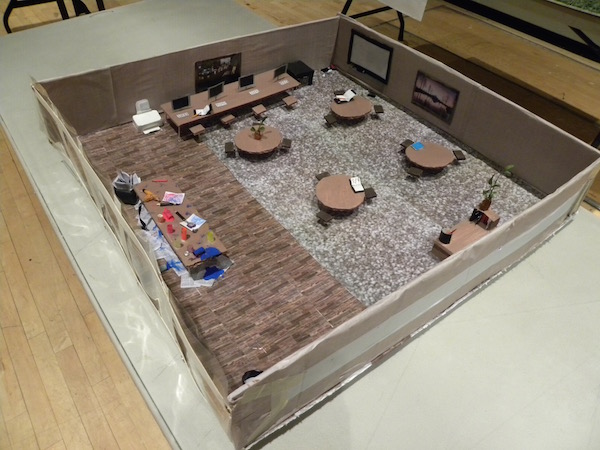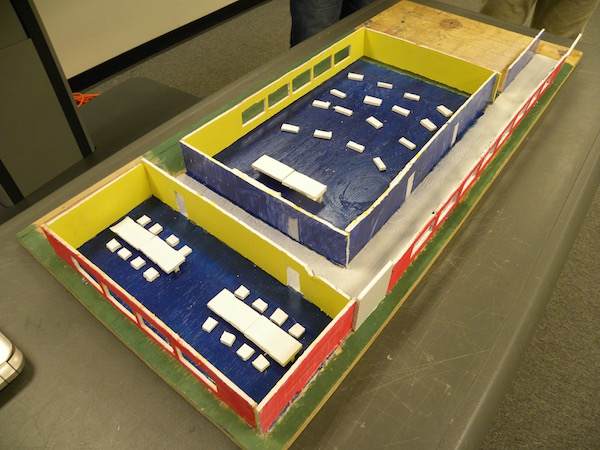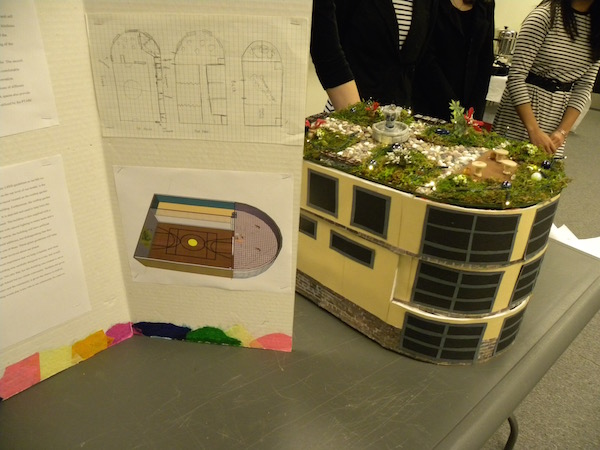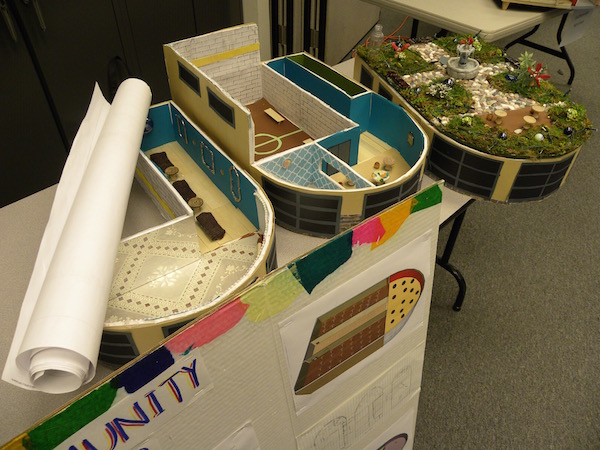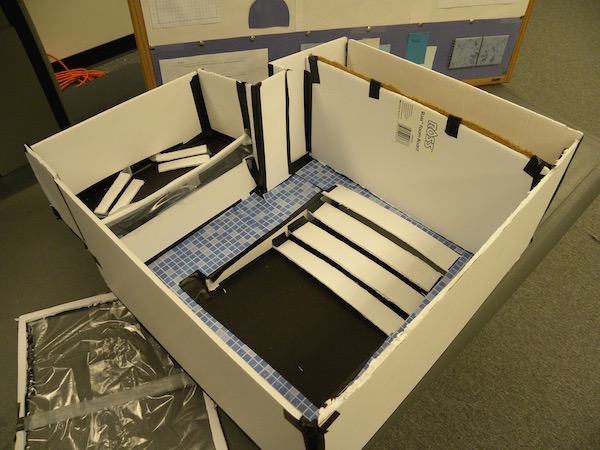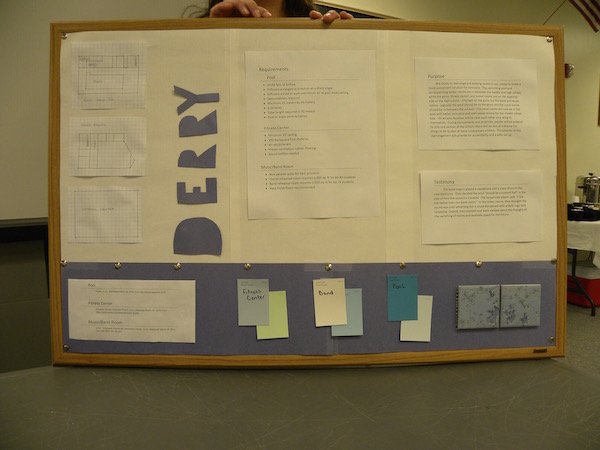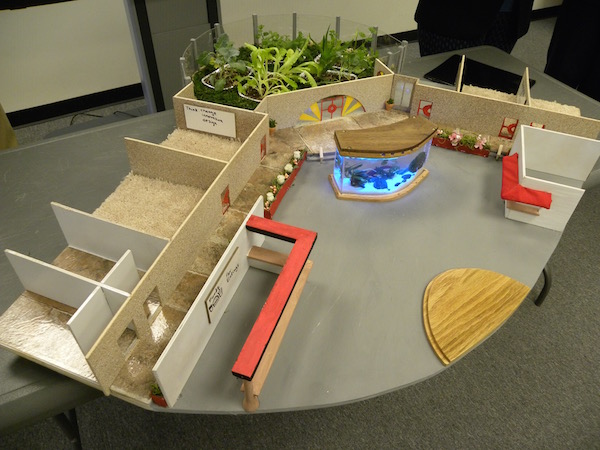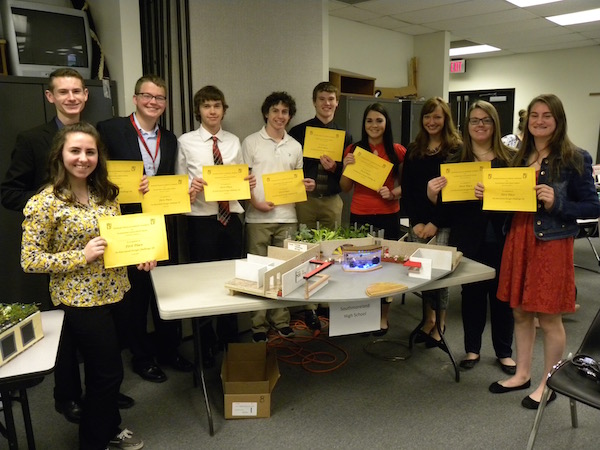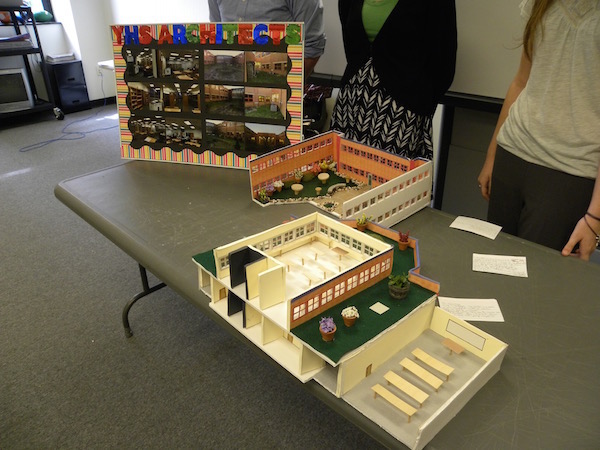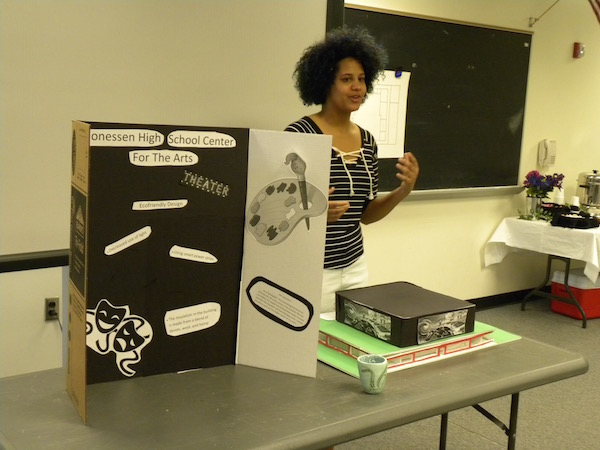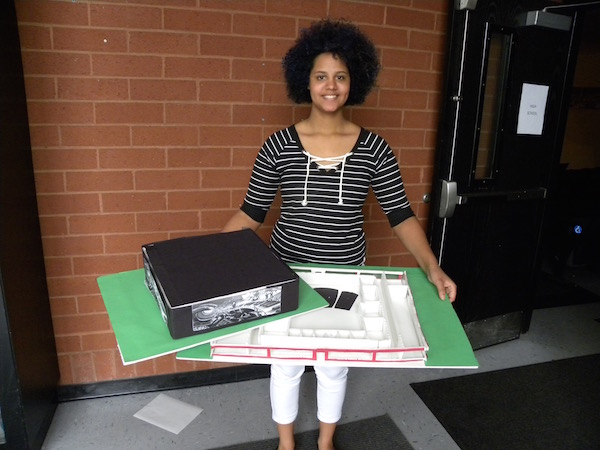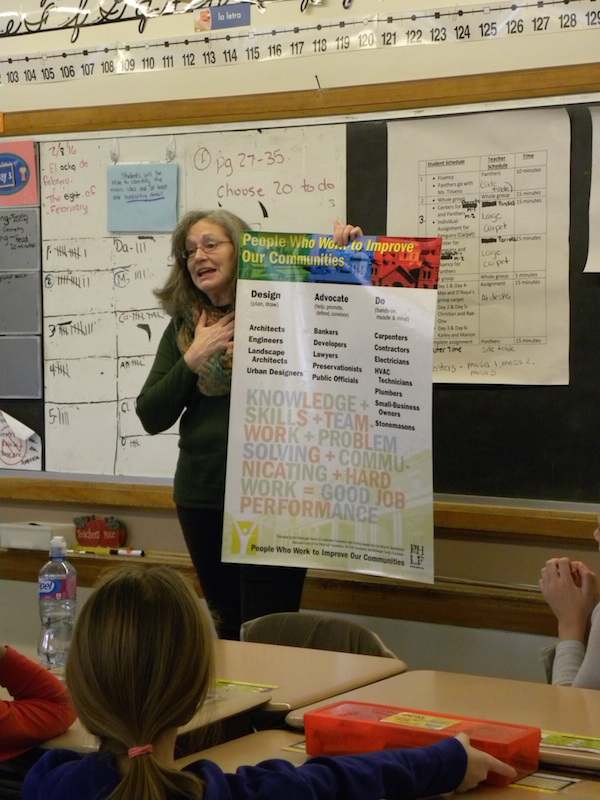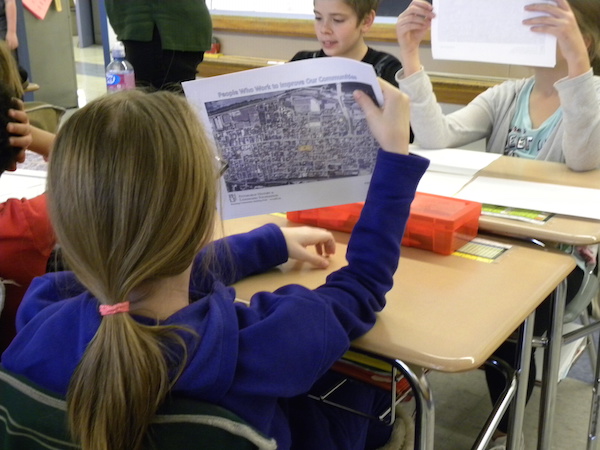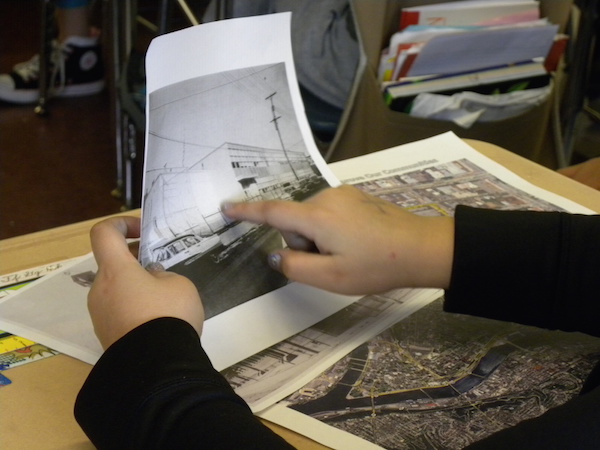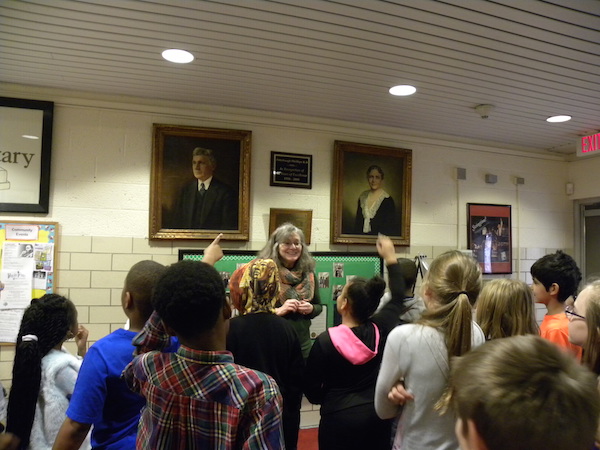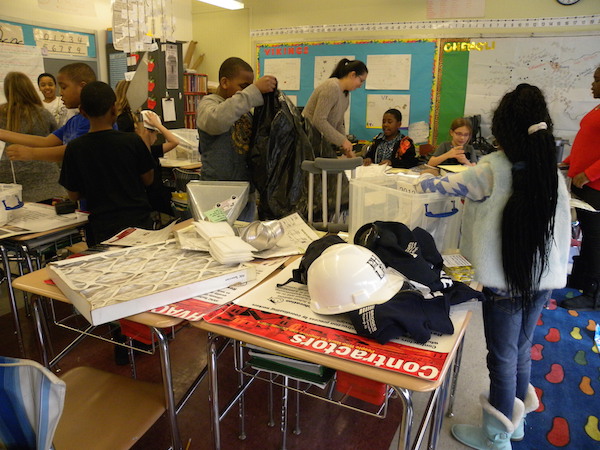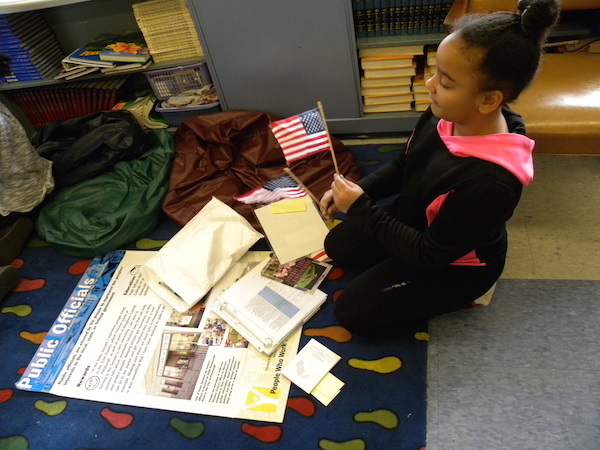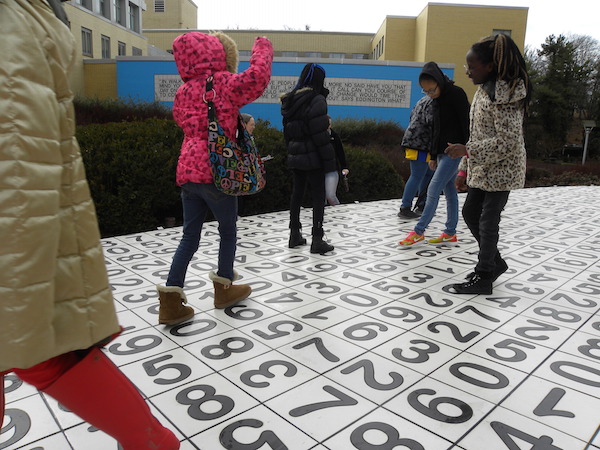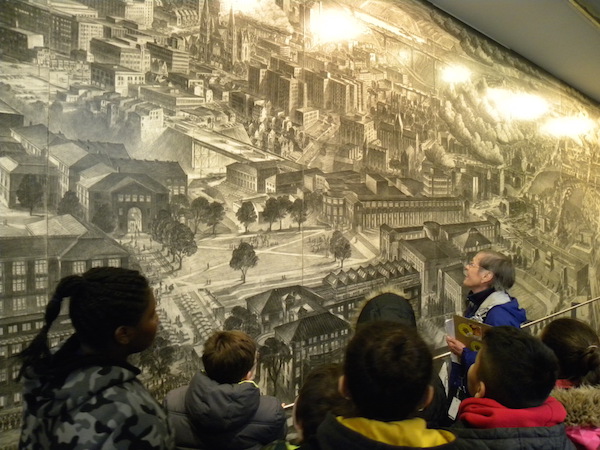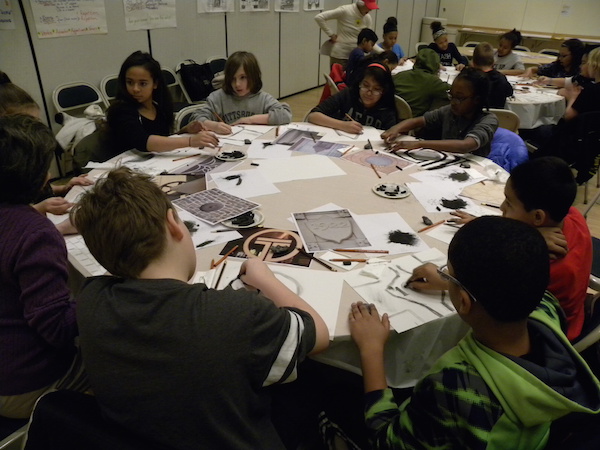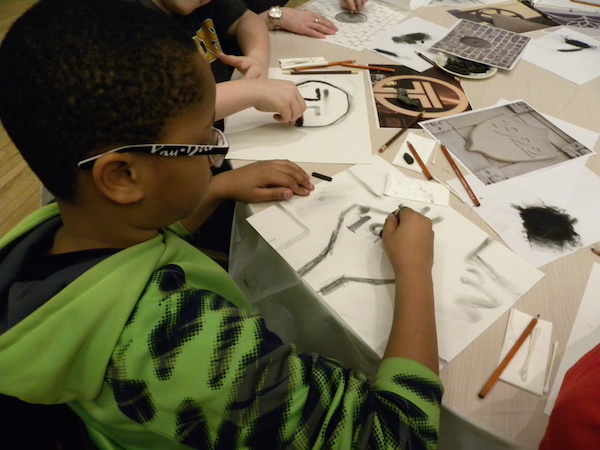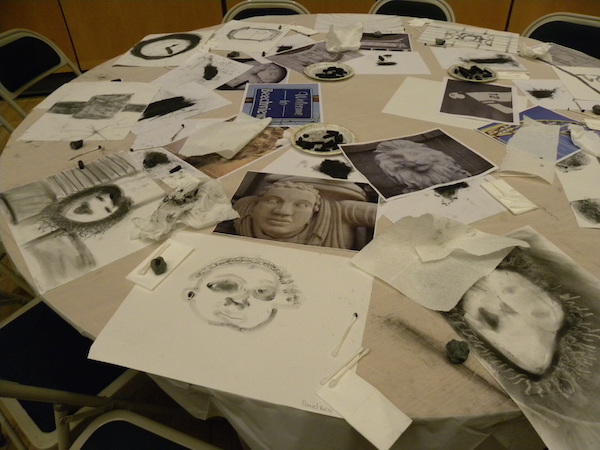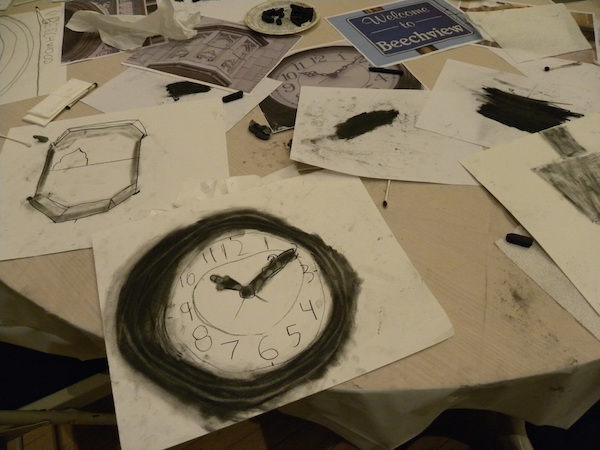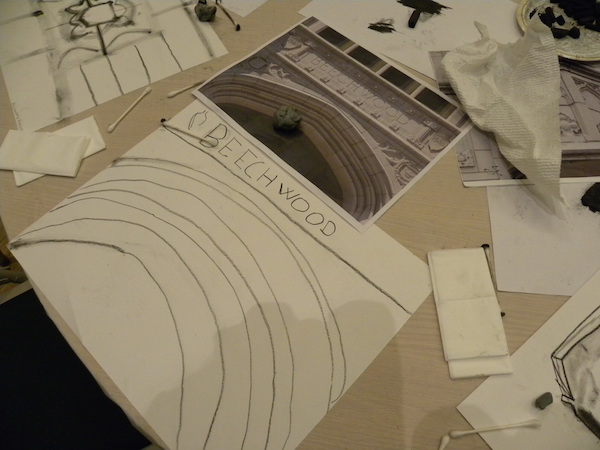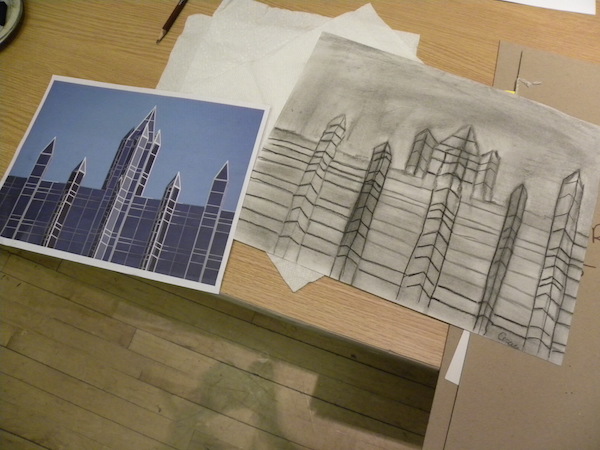
Category Archive: PHLF News
-
June 14 Scholarship Reception Will Honor Eight New Winners
After reviewing 74 applications submitted by college-bound high school students from throughout Allegheny County, PHLF’s Landmarks Scholarship Committee selected eight winners: four students will receive scholarships in the amount of $6,000 each for book and tuition expenses only, and four students will receive Honorable Mention awards––a one-time gift of $250 each. Click here to read about our eight new award recipients.
David Brashear, chair of the Landmarks Scholarship Committee, will present the awards during a reception on Tuesday evening, June 14, in the Hill District. Leroy Dillard, a member of the Scholarship Committee, and his wife Gwen, will host the reception at their home for invited guests, including award winners and their parents, former scholarship recipients, and recent donors. From their architecturally distinctive home that provides an incredible view of downtown Pittsburgh and the Allegheny River Valley, guests will enjoy barbecued ribs, chicken, and macaroni and cheese, while listening to live jazz. “This is just another example of the positive events happening here in the Hill,” said Leroy.
“Since 1999, PHLF has recognized 68 young people through its annual scholarship program,” said David. “Each person has achieved academic excellence and possesses the potential to make a difference in the Pittsburgh community and beyond. The students we select already feel connected to the city and its history and will hopefully continue to serve the region as leaders in promoting PHLF’s values.”
PHLF’s scholarship program is funded by generous contributions from the Brashear Family Named Fund and by donations to the Landmarks Scholarship Fund, including contributions to the 2008 and 2014 Scholarship Celebrations. To contribute, click here (and designate your gift to “Scholarship Programs”) or contact Mary Lu Denny (412-471-5808, ext. 527). Thank you.
-
“Iceburgh” and PHLF Build Pride with PPS Students
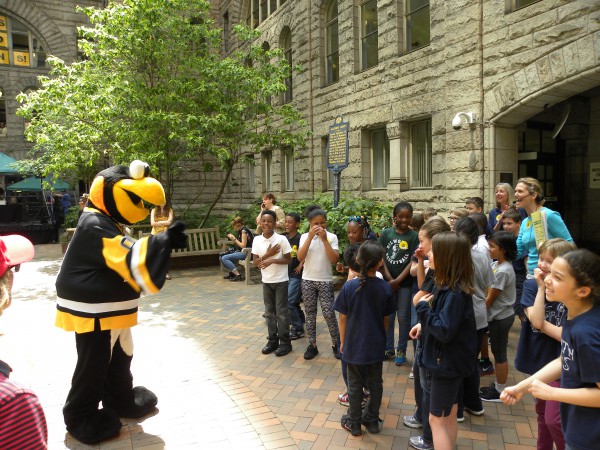
Pittsburgh Public School students met “Iceburgh,” the Penguins’ mascot, during their six-hour trolley tour adventure with PHLF, just prior to the pep rally in the courtyard of the Allegheny County Courthouse on May 26.
PHLF involved 10 Pittsburgh Public Schools on 11 trolley tours (Colfax needed two dates to accommodate the entire third grade) in March, April, May, and June. Although students from only one school met “Iceburgh,” students from each school met James Hill, special assistant to the Mayor, and their Council representatives or staff members, and visited five historic landmarks––the City County Building, Allehgeny County Courthouse, Fort Pitt Museum, Fort Pitt Block House, and Duquesne Incline.
“The beauty of the program,” said PHLF Education Coordinator Karen Cahall, “is that during the full-day tour students are challenged to develop the ‘character-building’ qualities of each place within themselves. For example, they are encouraged to be respectful, responsible, tolerant, and proud, just like the design and purpose of the City-County Building suggests.”
The “Building Pride/Building Character” trolley tours were funded through donations from private foundations and from corporate contributions through the PA Educational Improvement Tax Credit (EITC) program.
The following comments are representative of the many positive comments that PHLF received from teachers and parent chaperones:
- “I have been on this field trip twice, with two daughters 6 years apart, and my husband went with our son 3 years ago. It was the most memorable and educational field trip any of our kids went on in elementary school. On today’s trip, one student said to me that she wishes she could do this trip every day.”
- “As a third-grade teacher for 16 years, this program is by far one of the most worthwhile and memorable to our students. Would love to attend for another 16+ years!
- “This program helps to develop future citizens of Pittsburgh in a very unique way, instilling a pride that lasts a lifetime.”
- “This was a wonderful experience for our students and they learned so much too. Often they learn things they can’t relate to, but this trip is so relatable and tangible to them and they retain so much of the information.”
- “I love it. Best trip every year.”
-
Thank You Interns
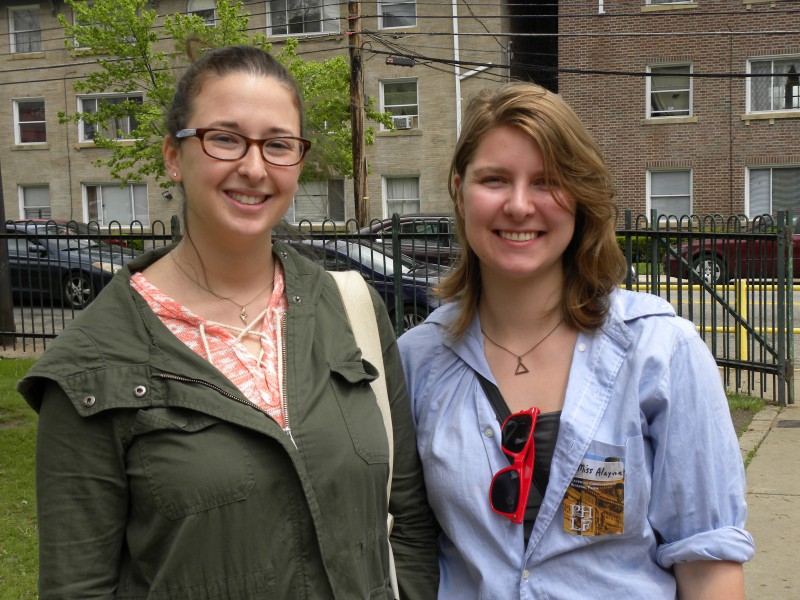
Kim Goldstein and Alayna Jordan, PHLF Interns. We are grateful to have several college students each semester volunteer their time to assist with educational programs and research projects.
Graduate student Alaina Bernstein from the Rhode Island School of Design and two undergraduates from the University of Pittsburgh––Kimberly Goldstein and Alayna Jordan–– volunteered their time and expertise to PHLF during the first half of 2016.
“Alaina Bernstein (not shown), Kimberly Goldstein, and Alayna Jordan were a great help to PHLF between January and April,” said Louise Sturgess, executive director of PHLF.
A graduate student at the Rhode Island School of Design, Alaina used her skills in interior architecture to propose a new design for PHLF’s front office. She volunteered five days a week from January 12 to February 12, and also assisted with several educational programs. The ideas she proposed are now being considered by professional architects as they move forward on design renovations for PHLF’s front office.
Kimberly Goldstein, who is studying History, Urban Studies, and Historic Preservation at the University of Pittsburgh, led several school tours and prepared worksheets for walking tours in Mt. Washington, Oakland, and Aspinwall. She was among the PHLF representatives who attended the City’s Incorporation Day Celebration on March 18, 2016, and was interviewed by Pittsburgh’s NPR news station. Kim volunteered three days a week from January 13 to May 2. “Interning with PHLF has not only taught me how to apply my education in the real world, but also has reconfirmed my passion for history, community outreach, and historic preservation,” said Kim.
Alayna Jordan, who is majoring in Architectural Studies and Civil Engineering at the University of Pittsburgh, volunteered four days a week from January 13 through May 2. She created renderings showing how a property in Wilkinsburg could be improved, and provided research and organizational assistance for many educational programs. This summer, Alayna is interning with the Technical Preservation Services of the National Park Service in Washington, D.C. She also applied for a Diversity Scholarship in the hope that she will be able to attend the National Trust’s Preservation Conference in Houston in November. “The time I spent at PHLF was filled with word documents, stuffing envelopes, and applying postage in preparation for tours, the scholarship program, and the City’s Incorporation Day Celebration––and going on tours. My work paid off in that I now conduct personal tours with my friends and family through new eyes. I thank the experience at PHLF and Al Tannler’s Pittsburgh Architecture in the Twentieth-Century (what a gem!) for broadening and changing my view of Pittsburgh,” said Alayna.
-
Exploring Pittsburgh with PHLF Members and Students
By Stephanie Springer, Penn State History Major and PHLF Volunteer Intern
PHLF members have been great sports, braving less than ideal weather on two weekends in May, while they explored one of the region’s oldest landmarks, newest nonprofits, and most notable neighborhoods. The first adventure, occurring Saturday, May 14, was a trip to the Walker-Ewing Log House and Pittsburgh Botanic Garden in Collier Township. The following Saturday, May 21, members visited Highland Park for an “urban hike,” including stops at the J. Horace Rudy House, St. Andrew’s Episcopal Church, Joseph Tambellini Restaurant, and the grounds of the King Estate. PHLF has also led a number of tours of parts of the city, including the Strip District and Market Square, for students of all ages. As an intern, I have had the opportunity to go on many of these tours and to learn about the diversity of the region’s built history, spanning from the rudimentary living quarters of pioneer families to the opulent homes of industrial tycoons.
The eighteenth-century Walker-Ewing Log House, the first stop on PHLF’s May 14th member tour, remained in the hands of the original family until it was donated to PHLF in 1973 and then in 1998 to the Pioneers West Historical Society that maintains it today. Members of the society gave us a tour and told us interesting stories about the lives of the people who had once called the building home. One tale that particularly caught my attention was of how some of the family’s children had been kidnapped by Native Americans and taken to Canada but, incredibly, had found their way back home. The exact date of the construction of the log house is uncertain, but the date “1762” is still visible on one of the stones of a fireplace. The question is: does this date mark the beginning of construction or is it from a prior log cabin that was burned by Indians in 1782? More research is required.
After touring the Walker-Ewing Log House, we went up the road to the Pittsburgh Botanic Garden, a newly opened venture that is turning land ruined by coal mining into a nature preserve featuring 460 acres of plush trees and greenery lined with hiking trails. The group went on a guided tour of the site and walked through seemingly endless forests, taking stops at a play area for autistic children, a sculpted dragon hidden among the foliage, and a fairytale garden containing thatched-roof fairy dollhouses that would dazzle children and adults alike. Near the end of the hike, we came upon a pond where creative techniques are being used to make once-toxic water into a livable and clean area for visitors to enjoy. I was fascinated by the way that the Botanic Garden has turned land that was once an uninhabitable hazard into something so beautiful and useful to the community. In this way, the garden is like the buildings PHLF saves—an unwanted fragment of another time that has no purpose until someone with a vision comes along and gives it a second chance.
Click through the photo gallery below for a look at the various events.
A week later, members met in Highland Park at the J. Horace Rudy House, designed by the stained-glass artist who first owned the property and for whom the home is named. The house serves as a display case for the variety of glass the artist made—some of my favorite pieces were an aqua-blue glass-tiled fireplace and a stained-glass window with a green and red tree and a scroll that reads “Life is a measure to be filled, not a cup to be drained.” The next stop on the walk, St. Andrew’s Episcopal Church, also features gorgeous stained glass from a variety of periods and artists. Tour participants then walked to Joseph Tambellini Restaurant for delicious snacks and hot beverages to warm us up on the chilly, rainy day. The tour finished with a stroll to the front lawn of the King Estate and to the Highland Park Reservoir. Monica Watt, president of the Highland Park Community Council, and PHLF docent Brady Lutsko and Historical Collections Director Al Tannler were excellent guides. Many people enthusiastically asked questions and shared their own knowledge of the area’s history throughout the afternoon. Member Buzz Wichman said of the tour, “My childhood years were spent at 1317 Sheridan Avenue and this walk brought back many wonderful memories for me.”
Students, too, have enjoyed the Pittsburgh sites they have seen through PHLF’s guided tours. I have followed many school tours in the last few weeks and have watched the joy and wonder of young people who are seeing parts of Pittsburgh for the first time. Many of these tours have been “Strip Strolls,” where students, mostly third graders from the Pittsburgh Public Schools, walk through the Strip and learn its history in the context of a book they are reading, Macaroni Boy, by Katherine Ayers. The book is about a boy growing up in the Strip District in the 1930s, so students visit St. Patrick’s, where the main character attended school, and St. Stanislaus, which was damaged in the 1936 Banana Company explosion described in the story. Throughout the tour, students act as detectives trying to solve “The Mystery of the Strip” and determine why people like to come to the area. Students learn about the Strip’s history and the diverse backgrounds of the people who came to live and work there. On the tours I have shadowed, there have been students who were born in Mexico, the Netherlands, Italy, Syria, Egypt, India, and Korea. These students taught their peers to say “thank you” in their native languages (as a result of reading the words on the exit doors in Wholey’s) and became excited about entering stores like Labad’s Mediterranean Grocery and Reyna’s Mexican Grocery. Everyone especially enjoyed receiving a free breadstick, compliments of Mancini’s, and using one of the foreign languages they had just learned to say “thank you.”
Other school tours have included one focusing on the revitalization of Market Square and many taking students on board Molly’s Trolleys to five historic sites. The students on both of these tours were thrilled to be able to visit buildings and landmarks they had never seen before, or that they had only seen from the outside. Students on the “Building Pride/Building Character” trolley tour energetically acted out a play about the French and Indian War while in the Fort Pitt Museum and appreciated the views of Pittsburgh from the top of the Duquesne Incline. Watching students’ reactions to historic places in Pittsburgh, I have seen the city through their eyes and have come to appreciate my hometown from a new perspective.
If you are interested in participating in similar events this June, then join PHLF on a walk in Polish Hill and on a Free Friday Walking Tour in the Market Square Area.
-
Pine-Richland’s First Annual Architectural Design Challenge
After many months of work, six teams of sixth-grade gifted students from Eden Hall Upper Elementary School presented their models on April 5 to a jury of architects and community representatives showing how they would adapt the vacant Parsons House Garage on Chatham University’s Eden Hall campus to house an orientation center that would connect the community with the Falk School of Sustainability that is being developed on the 388-acre site in Gibsonia, PA.
“This first annual architectural design challenge was the result of a new partnership with Chatham University’s Eden Hall Campus and the Pittsburgh History & Landmarks Foundation,” said PHLF Executive Director Louise Sturgess. “Joanna Sovek and Jennifer Kopach, Eden Hall Upper Elementary Gifted Support teachers, connected with our organizations in 2015 so they could involve their students in meaningful assignments based in their community.” Kelly Henderson (LEED AP O+M), K-12 education coordinator at Chatham University’s Eden Hall Campus, highlighted this educational partnership (that also involves the Frick Art & Historical Center) during her presentation with Ms. Sovek, Ms. Kopach, and Principal Steven Smith at the Green Schools Conference, held in Pittsburgh from March 31 to April 1 at the David L. Lawrence Convention Center.
In the gallery below see the Design Challenge on April 5, 2016.
“One of our main goals in design challenges such as these,” said Louise, “is to let young people know that they have a voice in their community and that they have valid ideas for making it better. In the process of developing their model, oral report, and written presentation, they strengthen academic, problem-solving, and teamwork skills; they become passionate about their ideas for reusing a historic structure; and they feel more connected to their Pine-Richland community. They take tremendous pride in what they accomplish, and we are always impressed and inspired by their ideas and energy.”
Each team demonstrated that they can collaborate and develop an excellent design concept for a vacant building. By saving and finding a new use for that building, they are able to rejuvenate a local landmark so a sense of continuity is maintained in Pine-Richland.
A special thanks to the following people for serving as judges: Lou Anne Caligiuri, Chatham University; Samantha Carter, Carnegie Mellon University School of Architecture; Christopher Driscoll, Young Preservationists Association; Nancy Evans, Northwood Realty; Brian Newhouse, engineering consultant; Kelley Stroup, architectural historian; and Paul Tellers, AIA.
-
Pittsburgh Bicentennial Highlights PPS Student Art
On March 18, 1816, the legislators of the Pennsylvania General Assembly approved a charter of incorporation that transformed a small western Pennsylvania borough on the Forks of the Ohio into the City of Pittsburgh.
Two hundred years later, Pittsburgh Mayor Bill Peduto, Allegheny County Executive Rich Fitzgerald, Mike Turzai, Speaker of the Pennsylvania House of Representatives, and a multitude of other governments officials, civic leaders, and Pittsburghers gathered in the lobby of the City-County Building to celebrate the occasion.
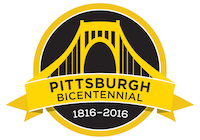 It was a festive atmosphere marked with civic pride as Pittsburghers gathered to revel in the history of how Pittsburgh government evolved from a township to a borough and then a city. The celebration included a display of important historical artifacts, including the City’s Articles of Incorporation, minutes of the first City Council meetings, and tributes to the living descendants of some of Pittsburgh’s former mayors, including our first mayor, Ebenezer Denny.
It was a festive atmosphere marked with civic pride as Pittsburghers gathered to revel in the history of how Pittsburgh government evolved from a township to a borough and then a city. The celebration included a display of important historical artifacts, including the City’s Articles of Incorporation, minutes of the first City Council meetings, and tributes to the living descendants of some of Pittsburgh’s former mayors, including our first mayor, Ebenezer Denny.PHLF docents and staff helped facilitate a student art project in which Pittsburgh Public Schools students created birthday cards featuring the architecture and unique character of their school. Students also signed their names or initials, the idea being that the names of future mayors were written on the birthday cards.
The Bicentennial Education Committee, chaired by Esther Bush, thanked PHLF and Pittsburgh Public School administrators and art teachers for working together to make the Birthday Card Project such a success. The photo gallery below shows photos of the 46 birthday cards designed and presented by the students.
As a member of the City’s Bicentennial Commission, PHLF has been involved on the Preservation, Education, and Events Committees in the planning of the year-long celebration and festivities. PHLF is also supporting Pittsburgh’s Bicentennial observation by receiving, acknowledging, holding and disbursing donations to fund commemorative activities chosen by the Pittsburgh Bicentennial Commission, chaired by Andy Masich, president and CEO of the Senator John Heinz History Center.
Click here to learn more about the Pittsburgh Bicentennial and to see a schedule of upcoming events and to get involved.
-
150 Students Participate in PHLF’s 20th Annual Architectural Design Challenge in Westmoreland County
This marks the 20th year that PHLF has partnered with the Westmoreland County Gifted Coalition to involve middle and high school students in an Architectural Design Challenge. “Each year we create a new design challenge, either in Westmoreland County or in the City of Pittsburgh,” said Education Coordinator Karen Cahall, “and each year students amaze us with the solutions they present and the beautifully crafted models they create.”
Thirty-four teams from 10 schools in Westmoreland County presented their models to a jury of architects on March 30 and 31 at Monessen High School. Their task was to: (1) explore their school and research its history; (2) analyze the pros and cons of their school; and (3) create a scale model showing a new or renovated space that would fulfill an unmet need in the school and strengthen connections with the community.
“What was fascinating about this Design Challenge,” said Executive Director Louise Sturgess, “was how students were able to change the culture of their school through architecture.” In the photo gallery below see the models––and come to PHLF’s library to read the written reports describing the remarkable programs and ideas.
A special thanks to the following people for serving as judges: Samantha Carter, Carnegie Mellon University School of Architecture; Roger Hartung, AIA, IKM Incorporated; Jan Mori, educator; Kelley Stroup, architectural historian; Jessica Stuck, Perfido Weiskopf Wagstaff + Goettel; and Paul Tellers, AIA.
“There are so many valuable skills that all 150 students acquire by participating in PHLF’s Design Challenge,” said Louise. “They become better at managing their time, meeting a deadline, and working in a team to reach a consensus and present a unified vision. We are always impressed with the amount of research students do and with the surveys they conduct to find out what people in the design challenge area think. They improve their math, art, science, writing, and presentation skills as they move through the various phases of the project. PHLF’s design challenge is the ultimate real-world application of so much of what is being taught in the classroom.”
The following middle school teams were awarded prizes on March 30, 2016:
- First Place: Franklin Regional “B”
- Second Place: West Hempfield
- Third Place: Wendover
- Honorable Mention: Yough “B”
- Honorable Mention: Harrold
- Honorable Mention: Franklin Regional “F”
- Student Award (best model according to peers): West Hempfield
- Penguin Award (overcoming a challenge especially well): Yough “D”
The following middle school teams were awarded prizes on March 31, 2016:
- First Place: Penn “D”
- Second Place: Monessen
- Third Place: Penn “C”
- Honorable Mention: Trafford “A”
- Honorable Mention: Trafford “D”
- Honorable Mention: Greensburg Salem “A”
- Student Award (best model according to peers): Trafford “A”
- Penguin Award (overcoming a challenge especially well): Penn “B”
The following high school teams were awarded prizes on March 31, 2016:
- First Place: Southmoreland
- Second Place: Yough
- Third Place: Penn Trafford
- Honorable Mention: Mount Pleasant
- Honorable Mention: Derry Area
- Student Award (best model according to peers): Penn Trafford
- Penguin Award (overcoming a challenge especially well): Monessen
A special thanks to Cinda Maxwell of Monessen High School for hosting the March 30 and 31 Design Challenge, and for all her efforts in coordinating PHLF’s program with the Westmoreland County Gifted Coalition. Thanks, too, to all the teachers who provided encouragement, guidance, and expertise to the students from October through March as they solved the 2015-16 Design Challenge.
-
More Corporations Donate to PHLF-PPS Program
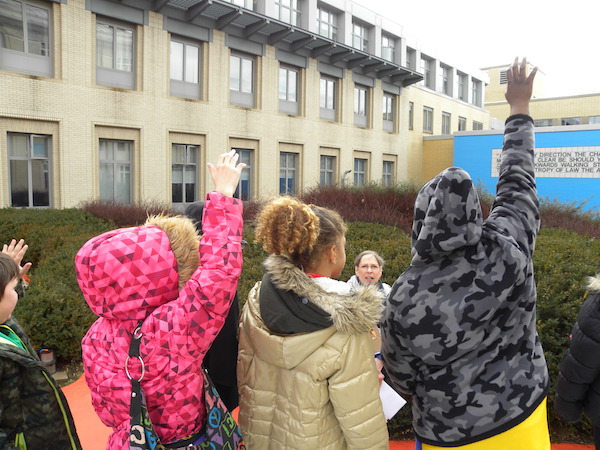
Fifth-grade students from Pittsburgh Beechwood were explorers, poets, and artists at Carnegie Mellon University during PHLF’s “Building Pride/Building Character” Poetry and Art workshop on February 24.
PHLF is a great asset to our community. The education staff, docents, and interns truly care about our city and their enthusiasm is passed on to the children of Pittsburgh. This helps the children build pride in their community and helps them develop their character in a positive sense. ––Pittsburgh Public School teacher
PNC Bank, Eat’n Park Hospitality Group, Inc., and Maher Duessel, CPA have joined First National Bank of Pennsylvania, Huntington Bank, and Frank B. Fuhrer Wholesale Company in contributing to PHLF through the state’s Educational Improvement Tax Credit Program. These corporations, along with funding from the McSwigan Family Foundation and Alfred M. Oppenheimer Memorial Fund of The Pittsburgh Foundation, are helping to underwrite PHLF’s “Building Pride/Building Character” program of field trips and educational programs for 14 Pittsburgh Public Schools. We are grateful to all our donors.
PHLF staff and docents presented “Portable Pittsburgh” and “People Who Work to Improve Our Communities” to Pittsburgh Banksville, Colfax, Concord, Greenfield, Phillips, and Westwood in February, and Pittsburgh Beechwood participated in PHLF’s Poetry and Art program at Carnegie Mellon University. In March, PHLF”s “Building Pride/Building Character” program will continue with more tours of Carnegie Mellon University and downtown Pittsburgh for various Pittsburgh Public Schools.
In the gallery below, view photos from PHLF’s recent Career Awareness and Poetry and Art programs.

